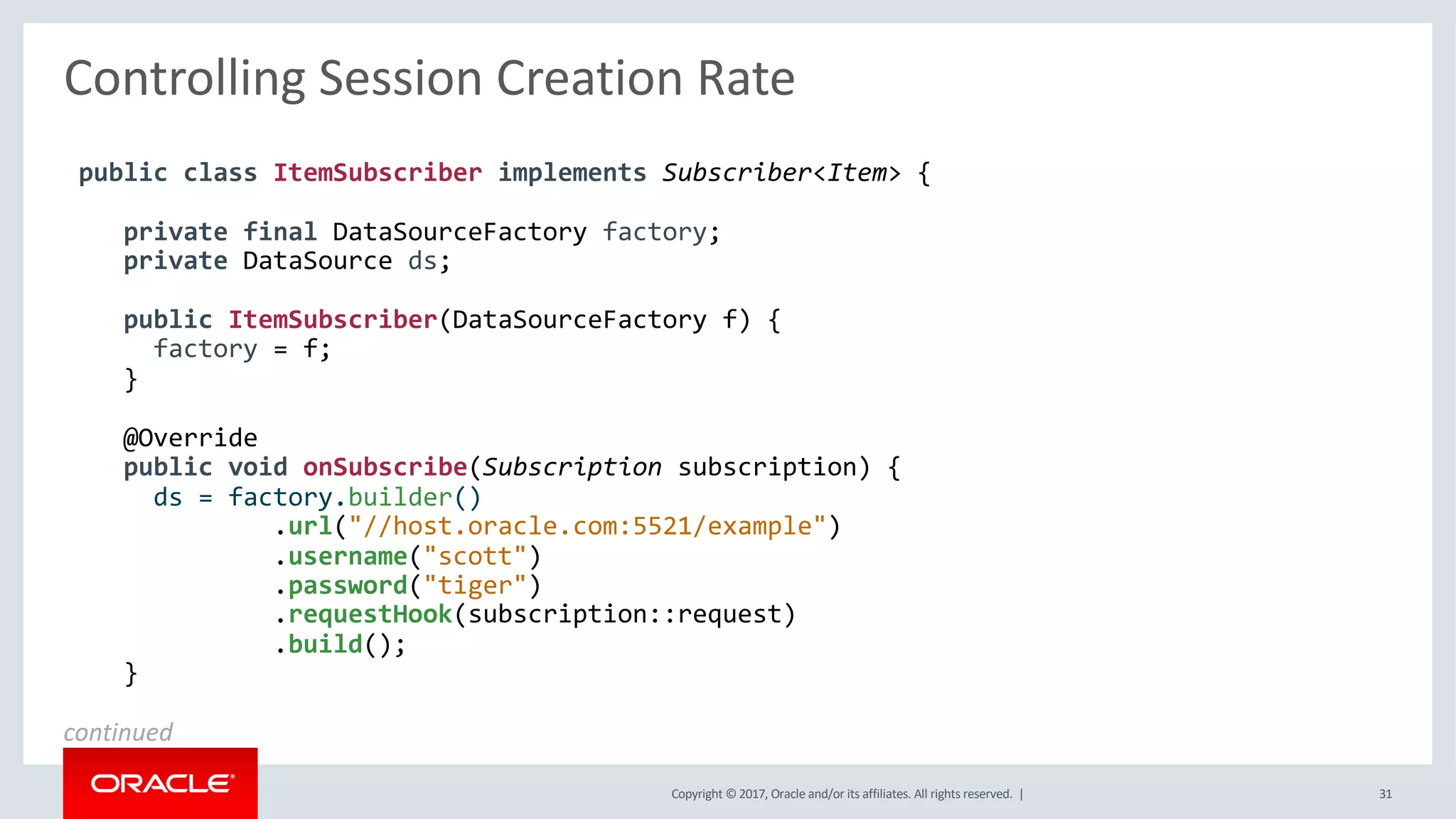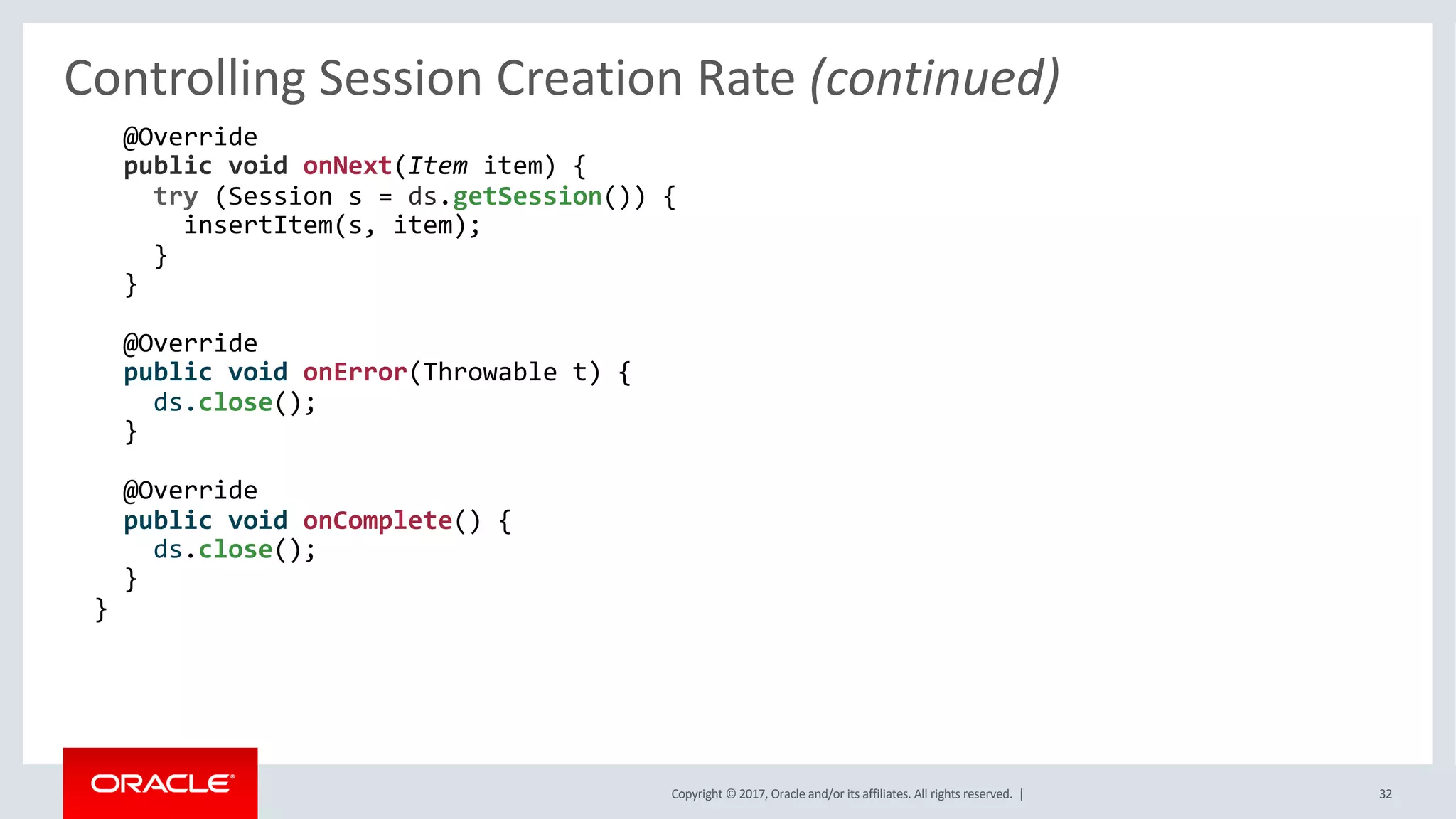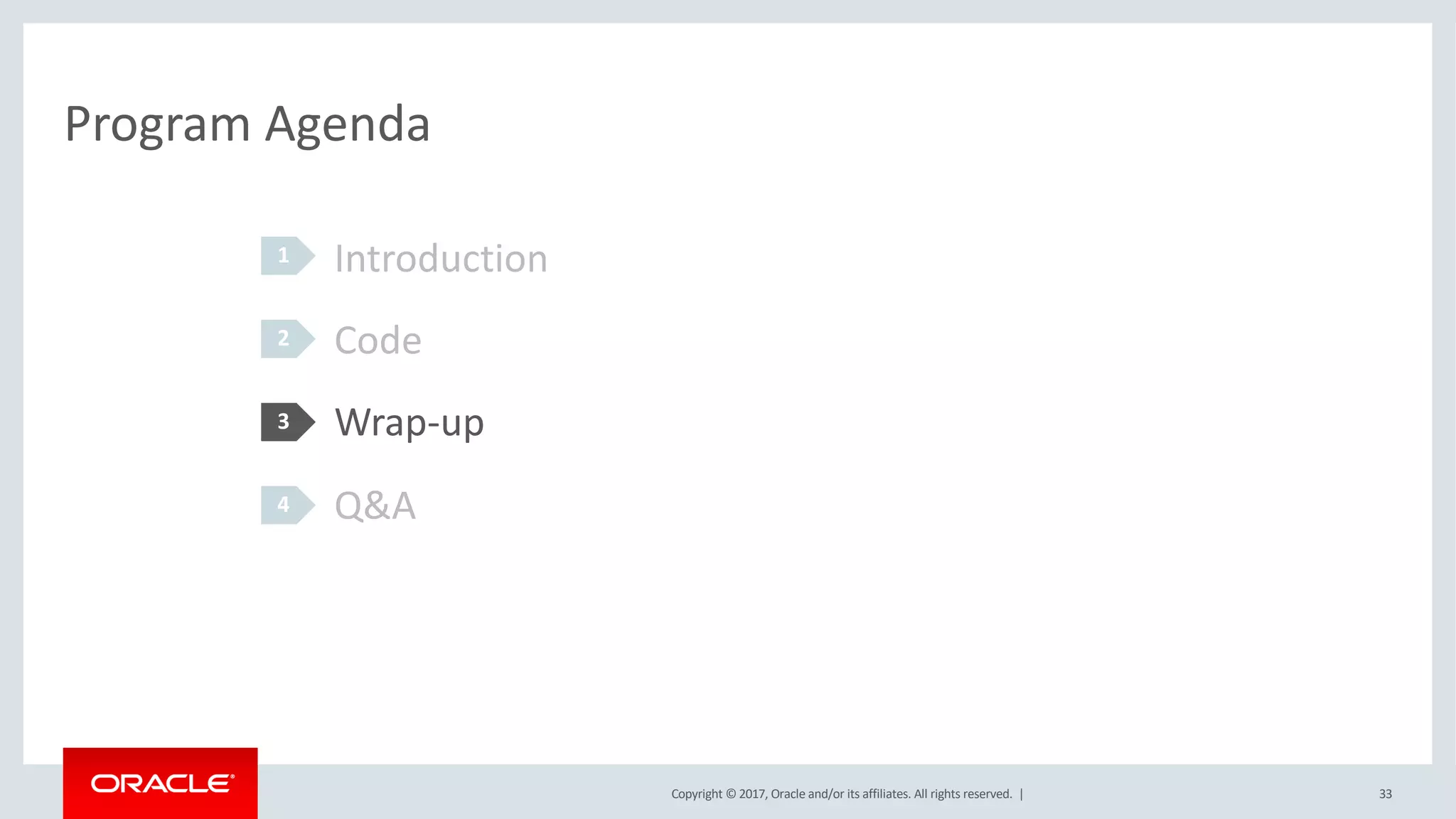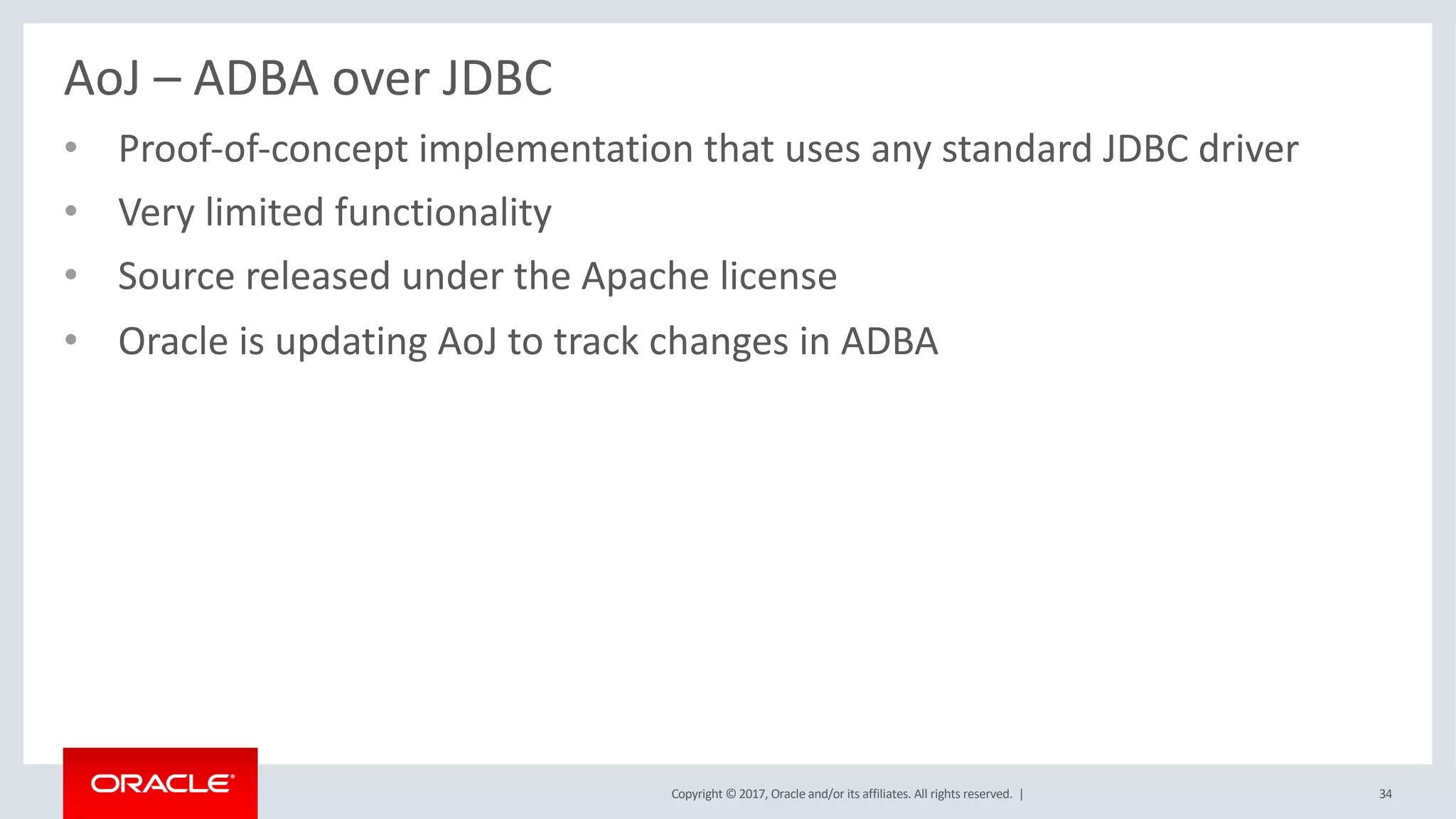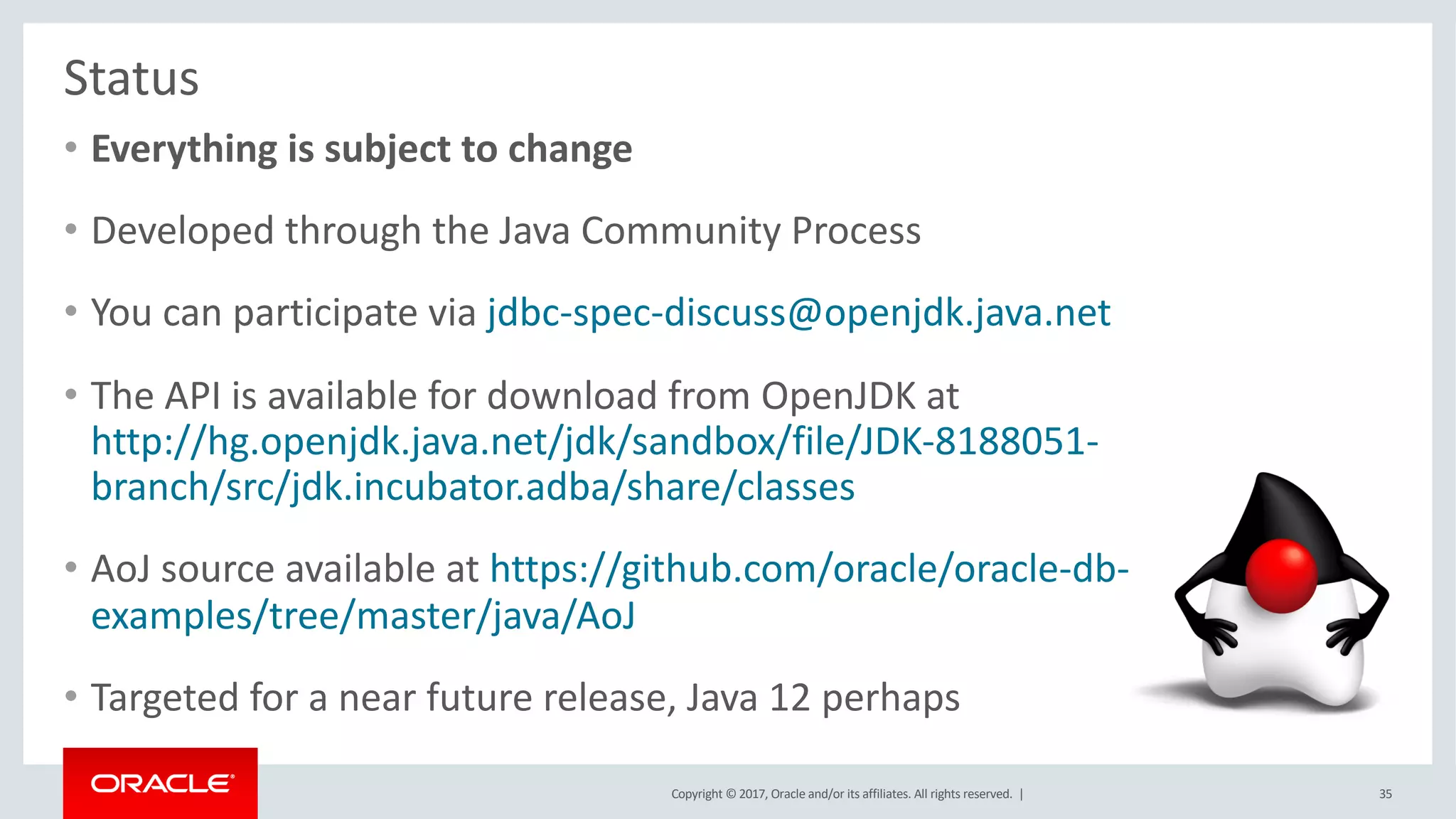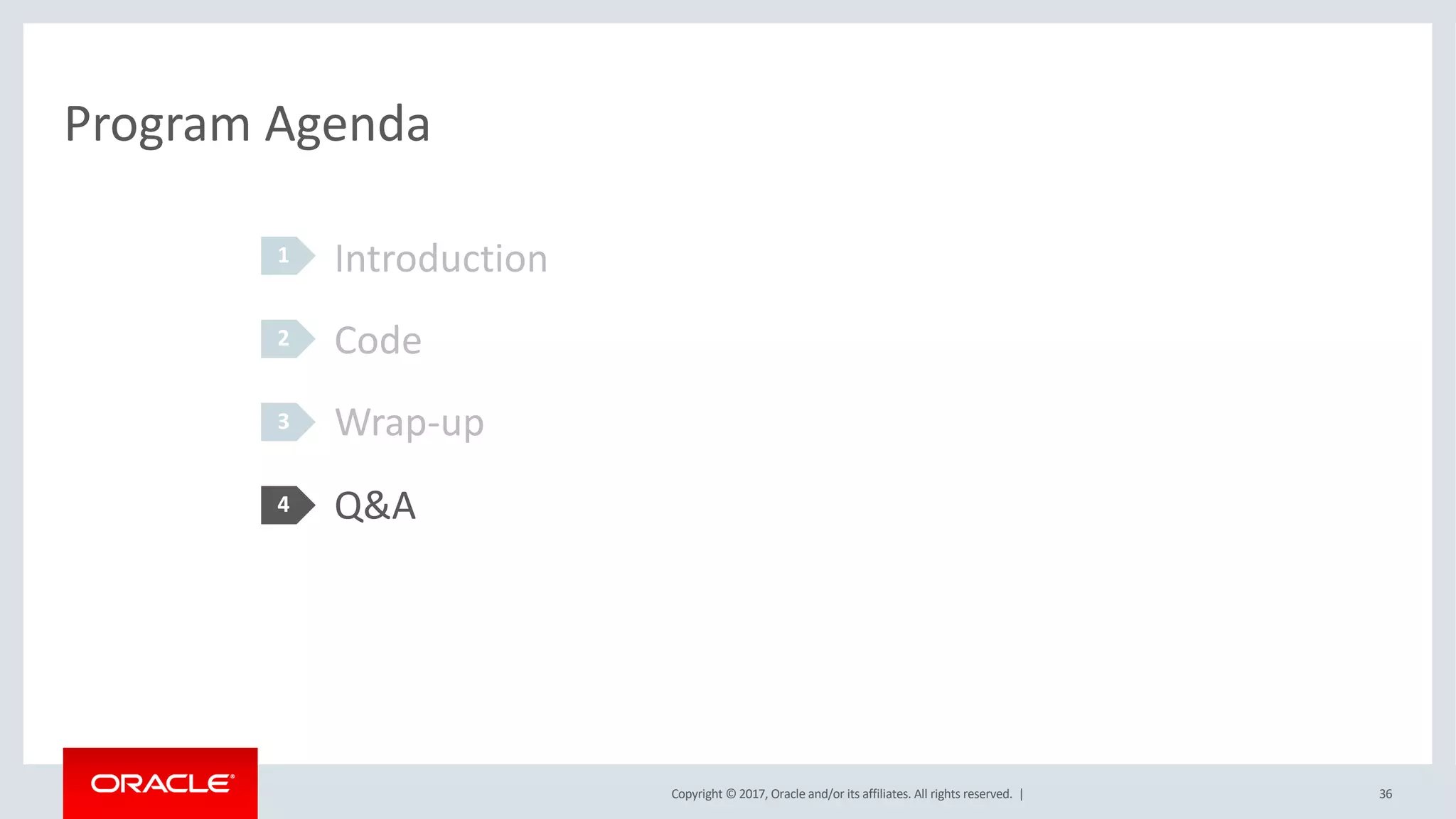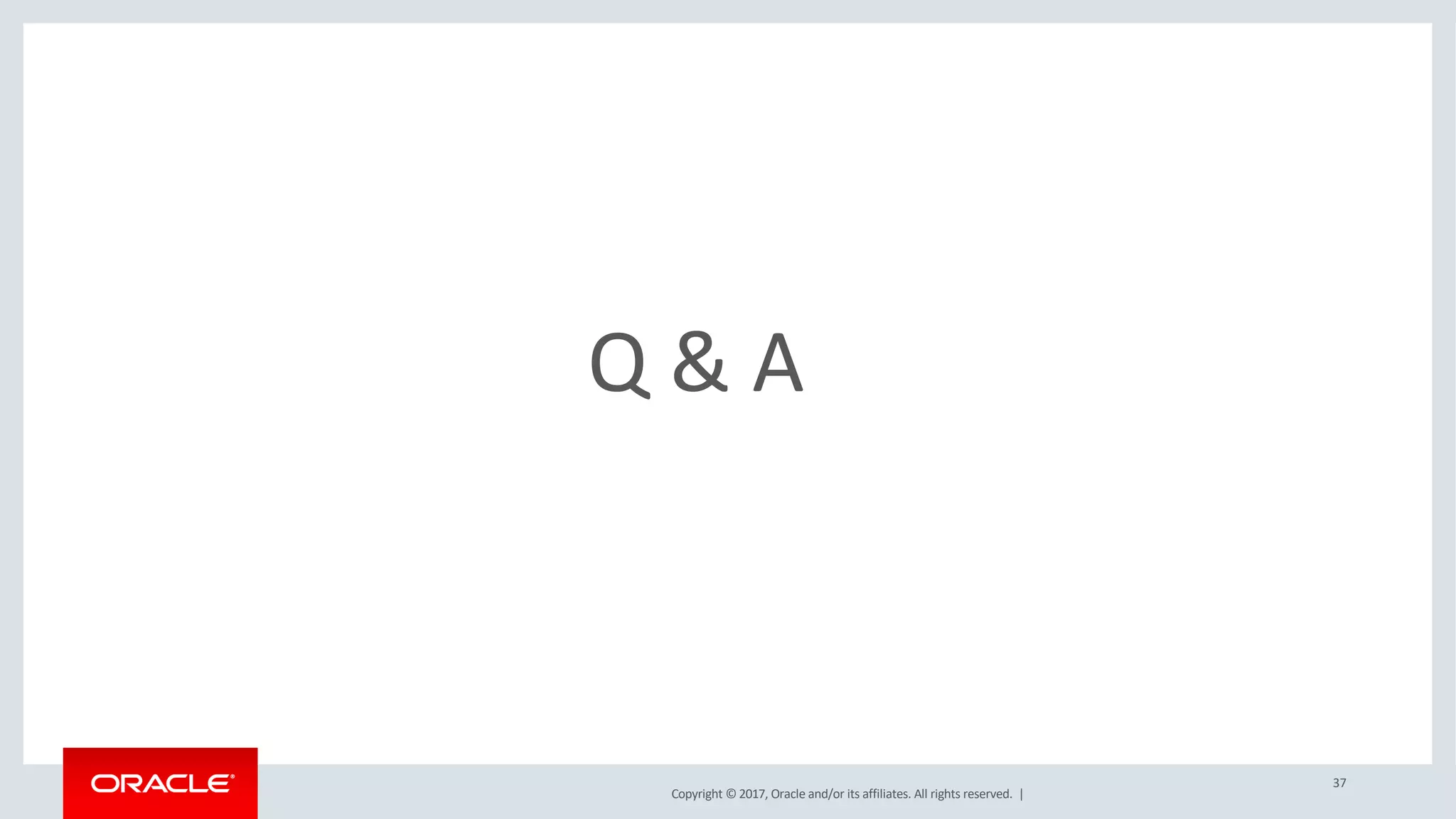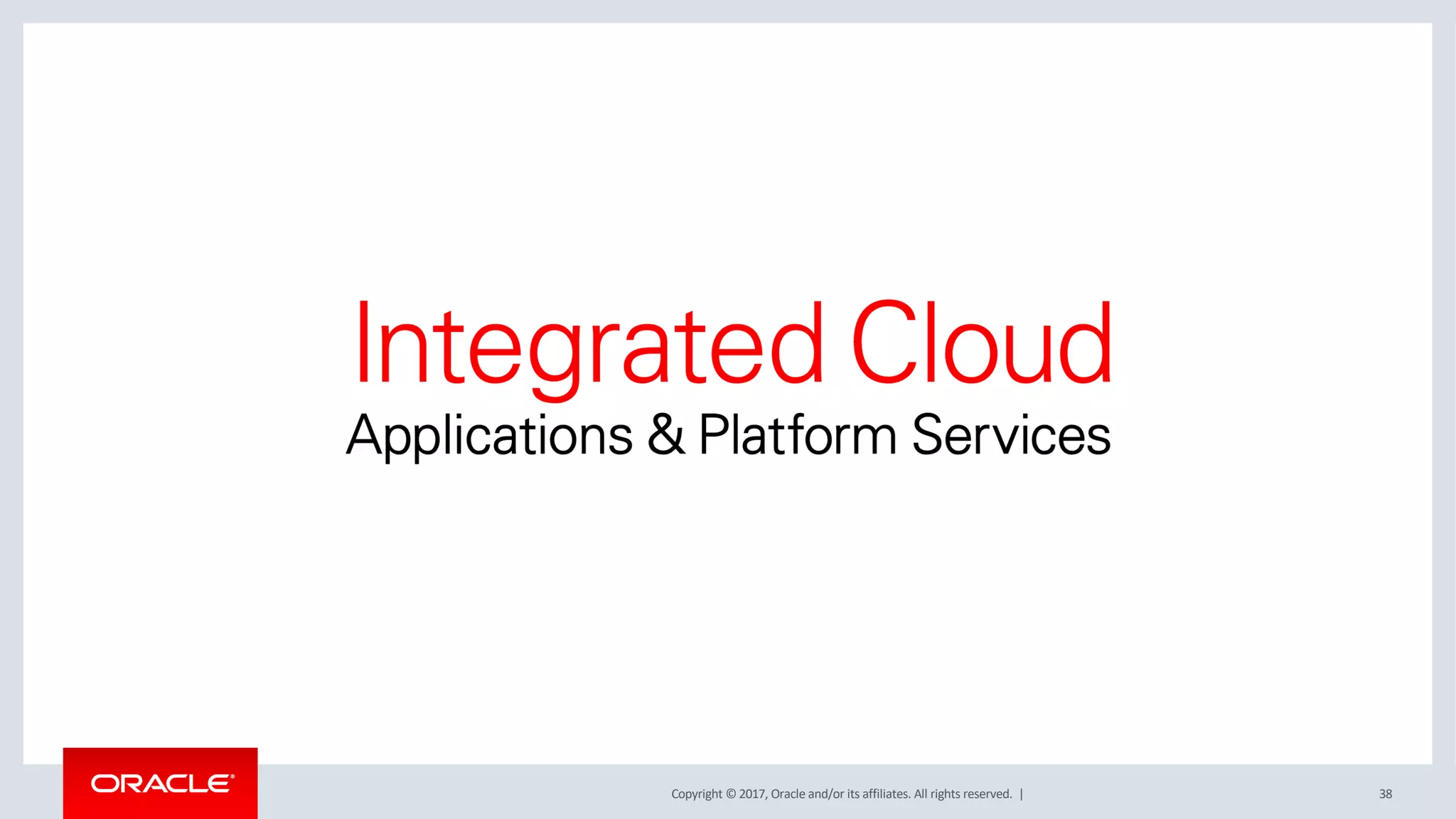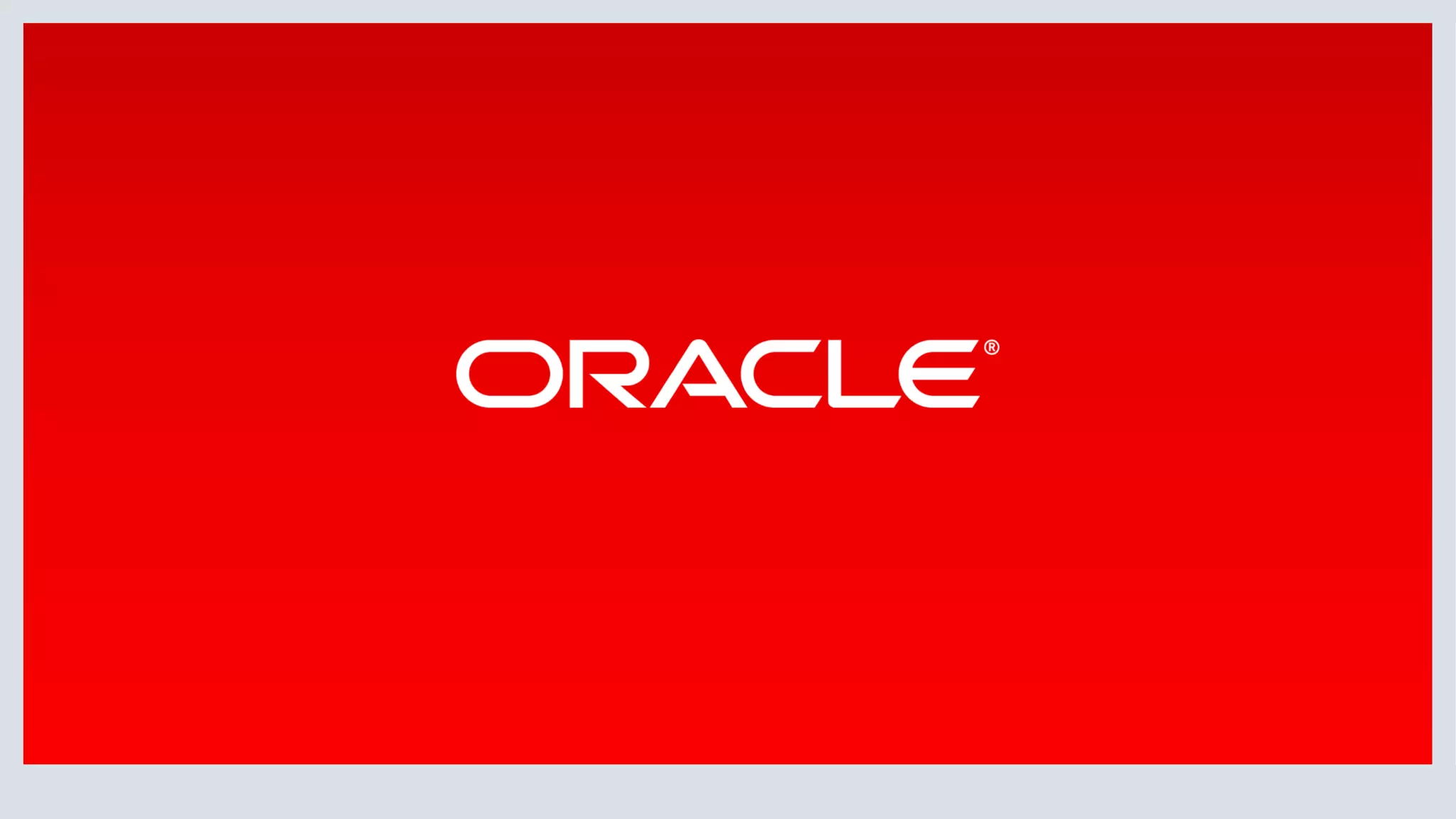This document introduces ADBA, a new asynchronous API for connecting to databases in Java. Some key points: - ADBA is being developed by the JDBC Expert Group and Oracle to provide a non-blocking way to access databases that avoids blocking user threads. - It aims to have no blocking of user threads, minimize the number of threads used for database access, and target high throughput applications. - The API design uses types rigorously, builder patterns, fluent APIs, and immutability to avoid callback hell and only provide one way to do something. - It does not rely on or reference java.sql and avoids SQL processing by the driver when possible. -
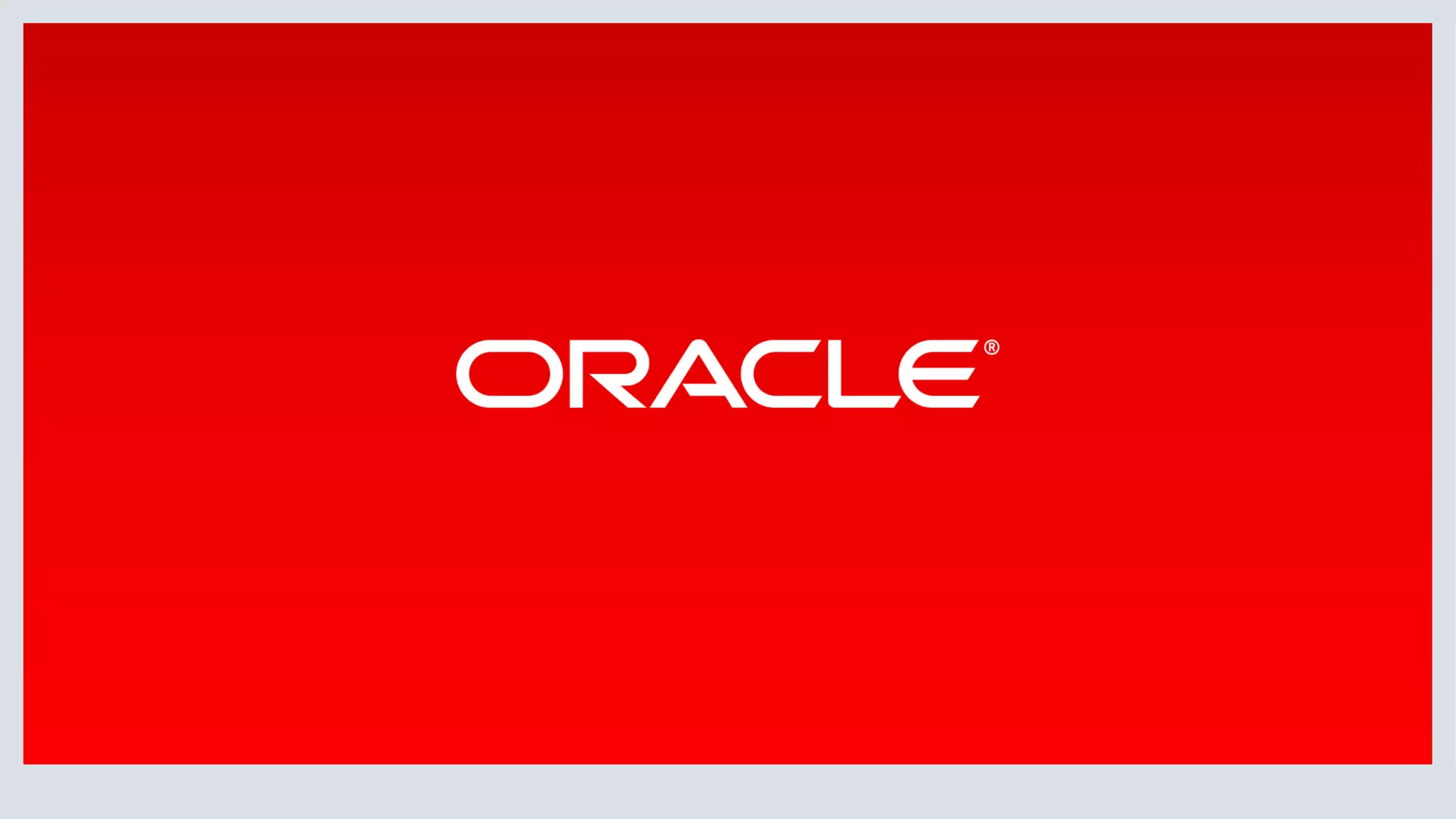
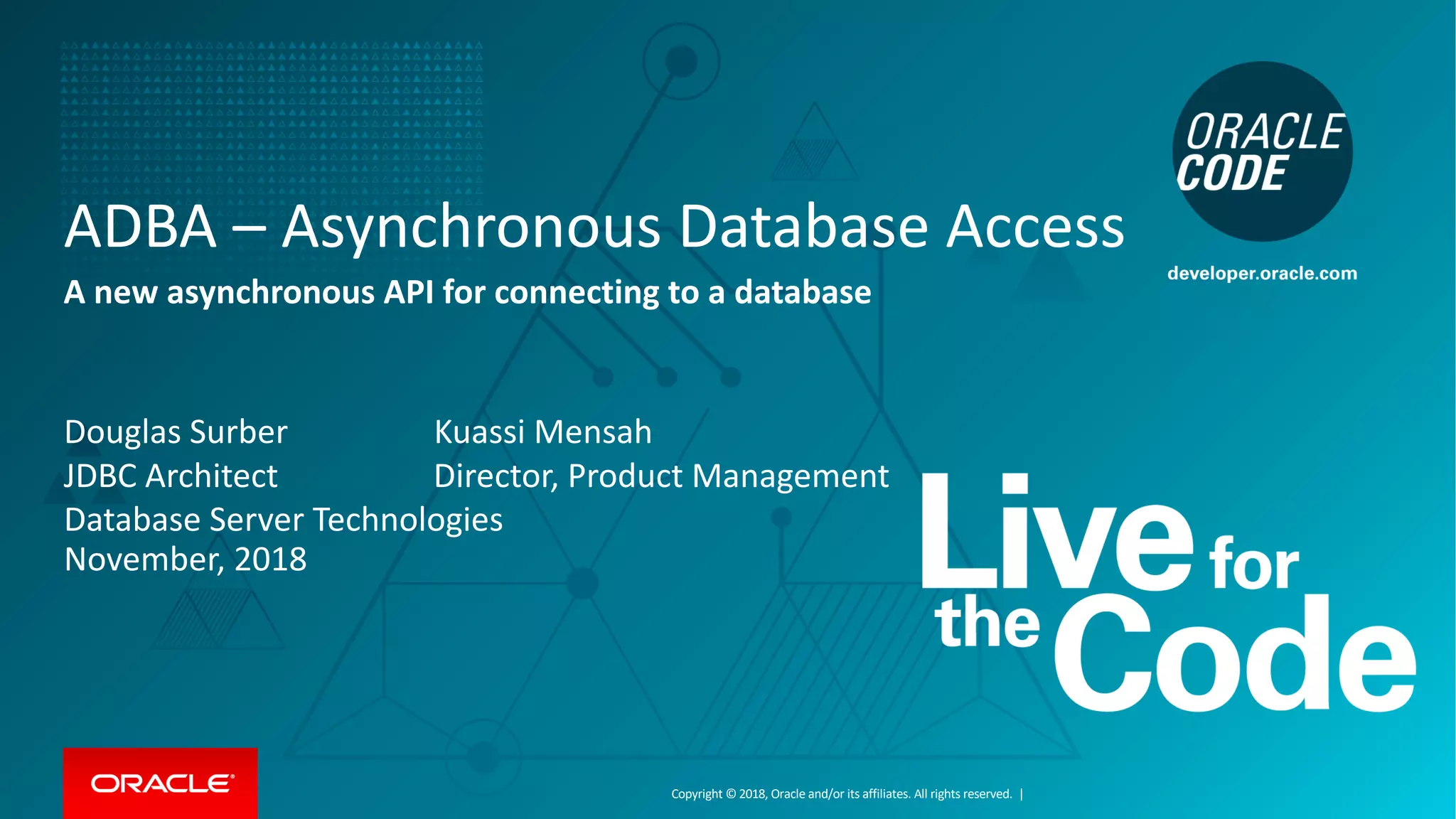
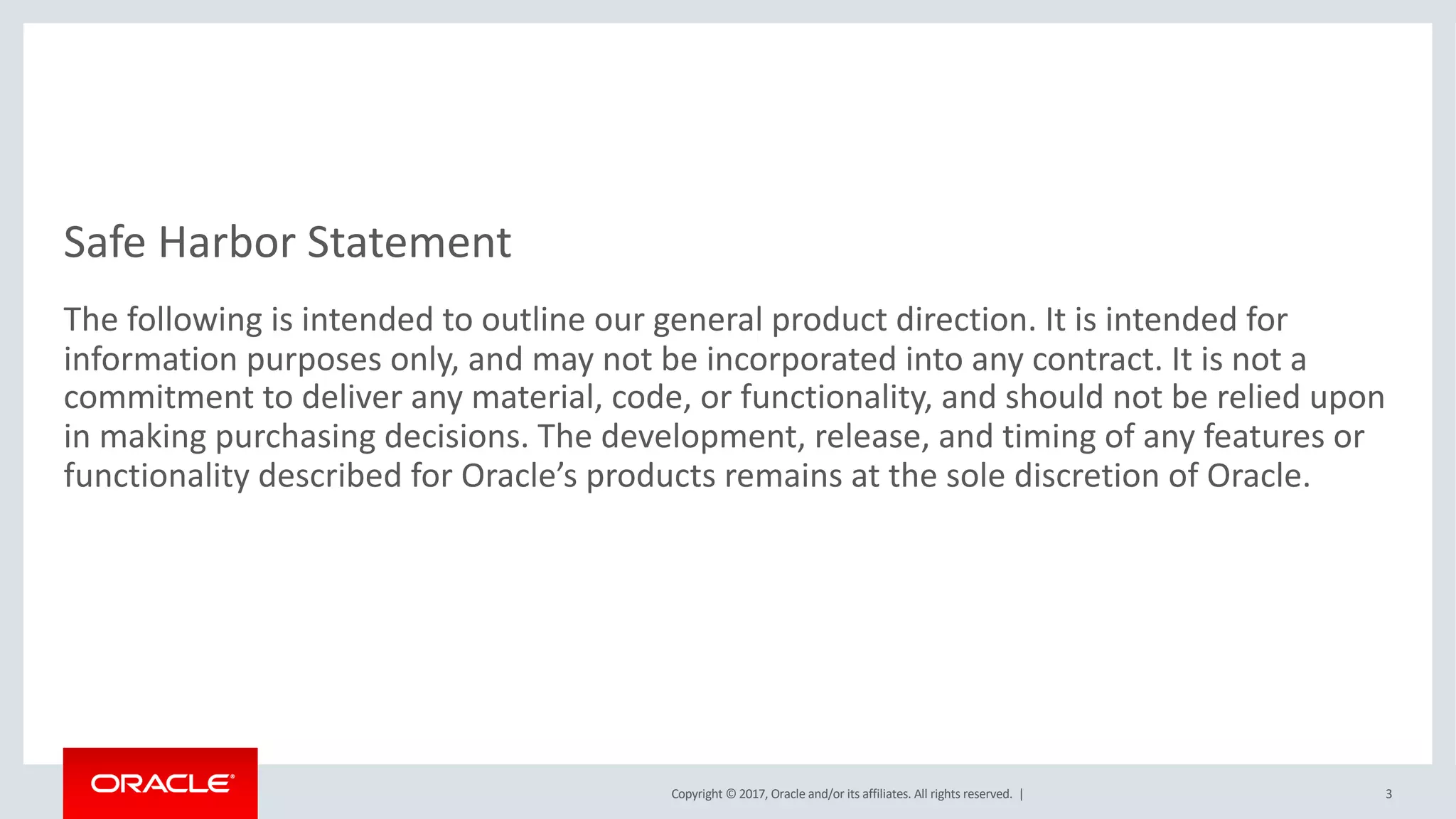
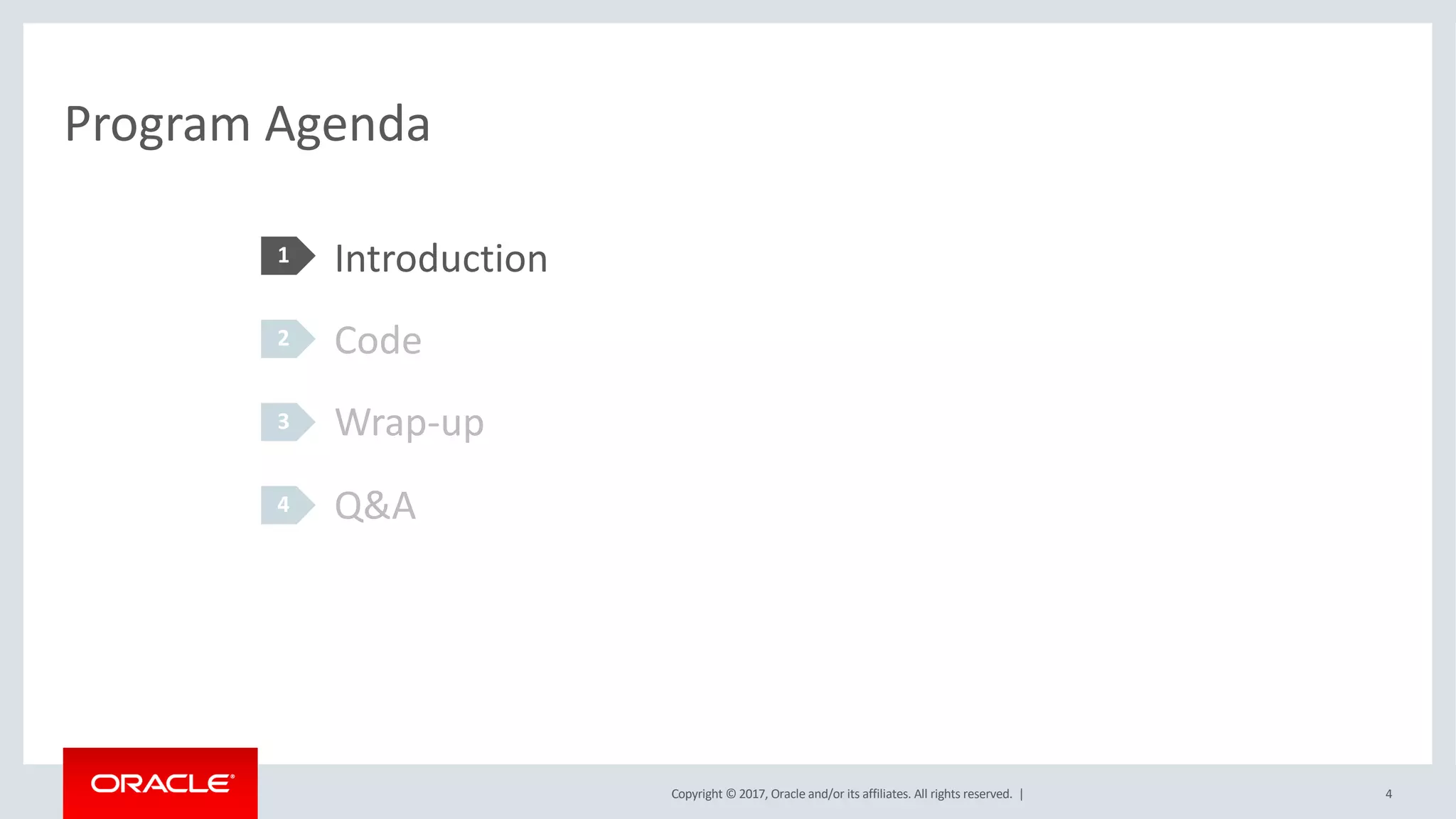
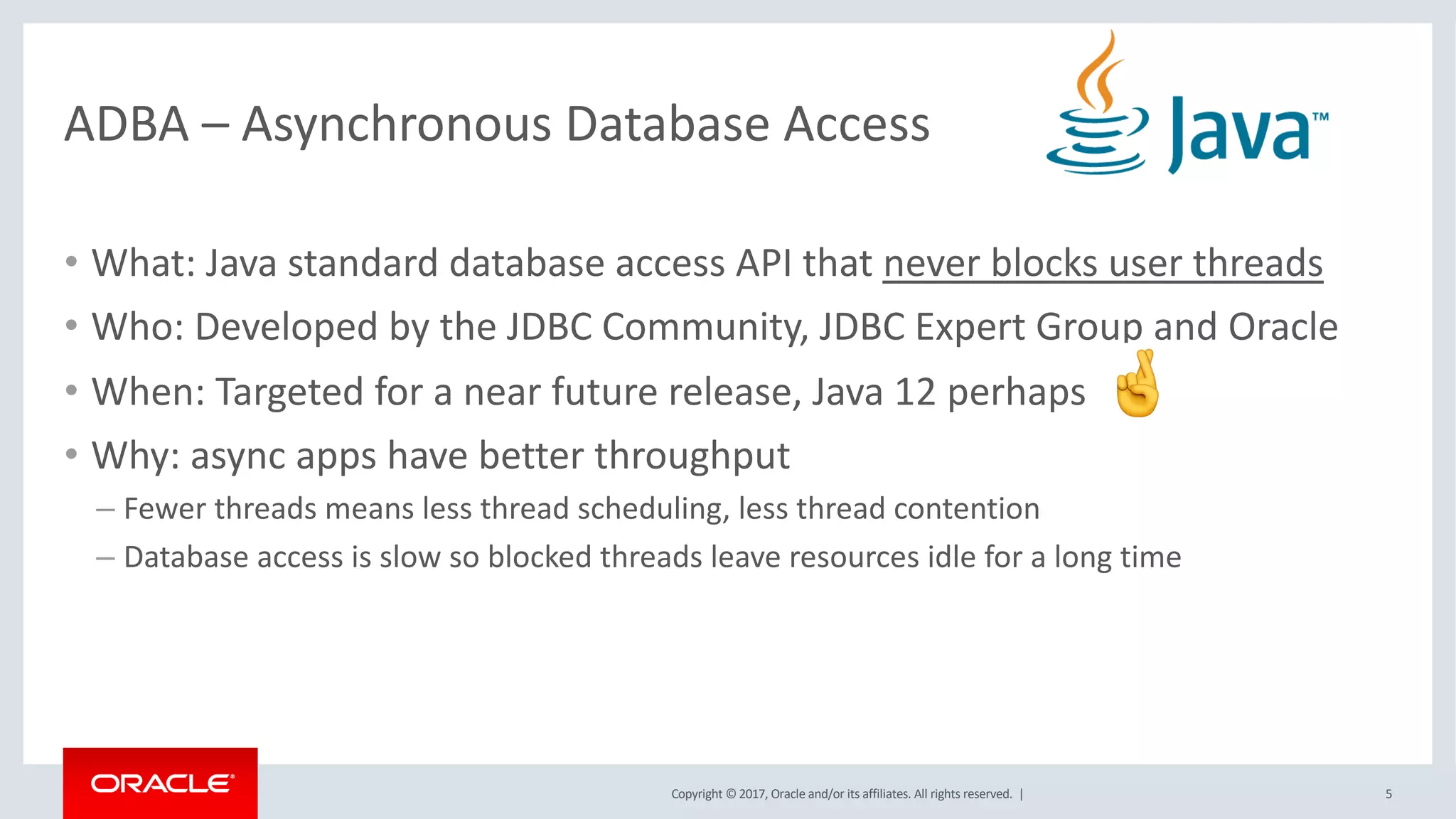
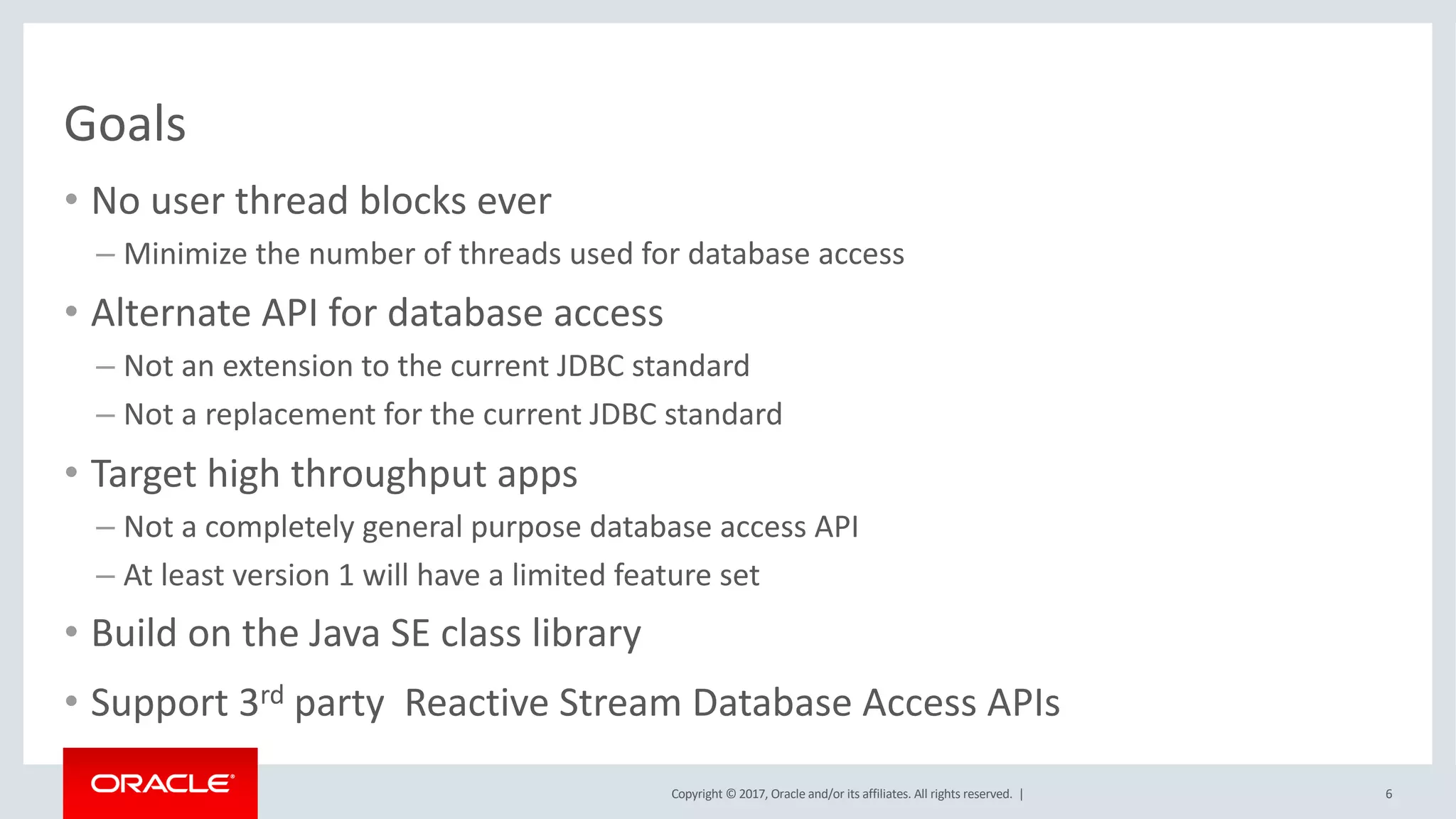
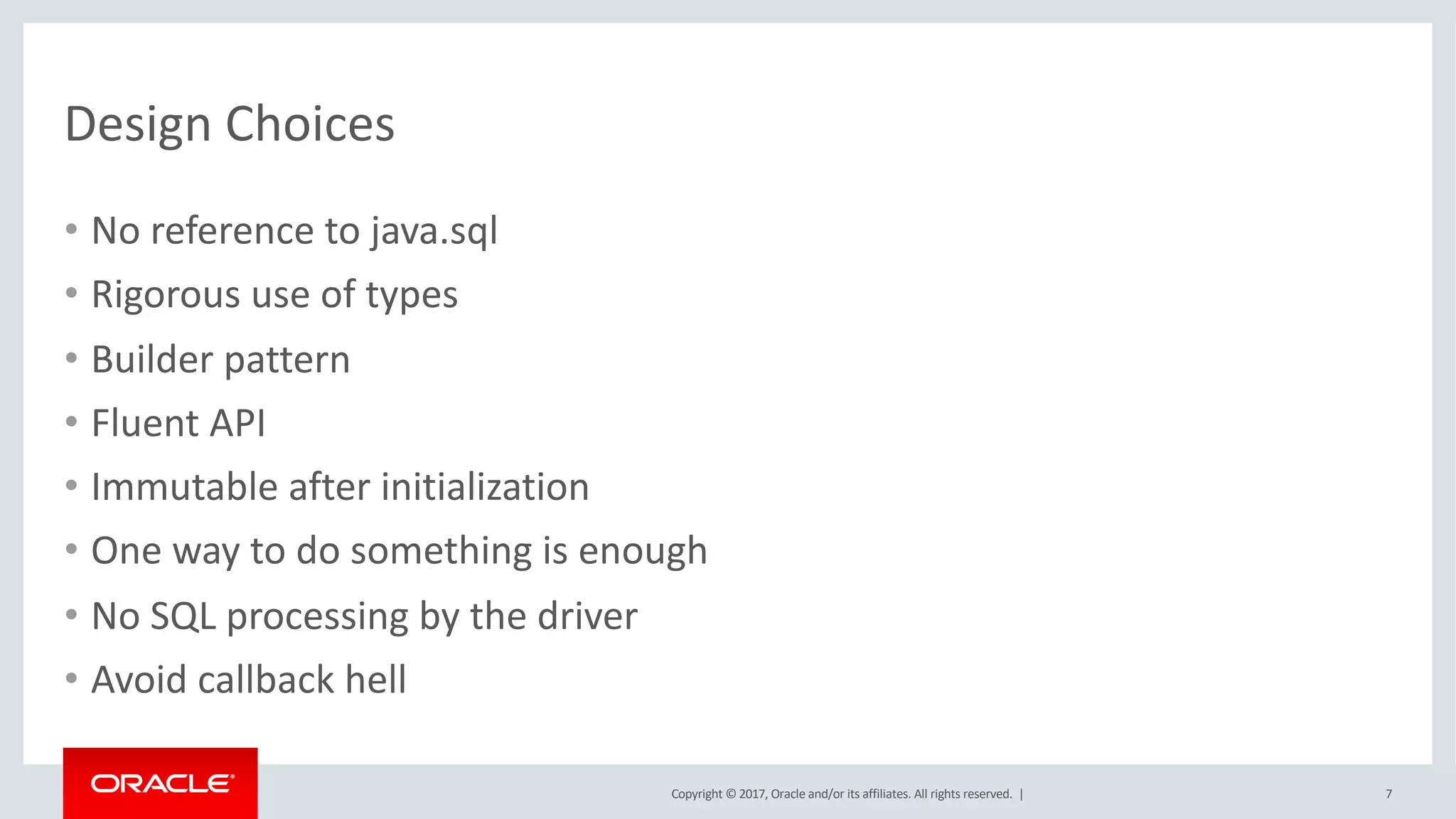
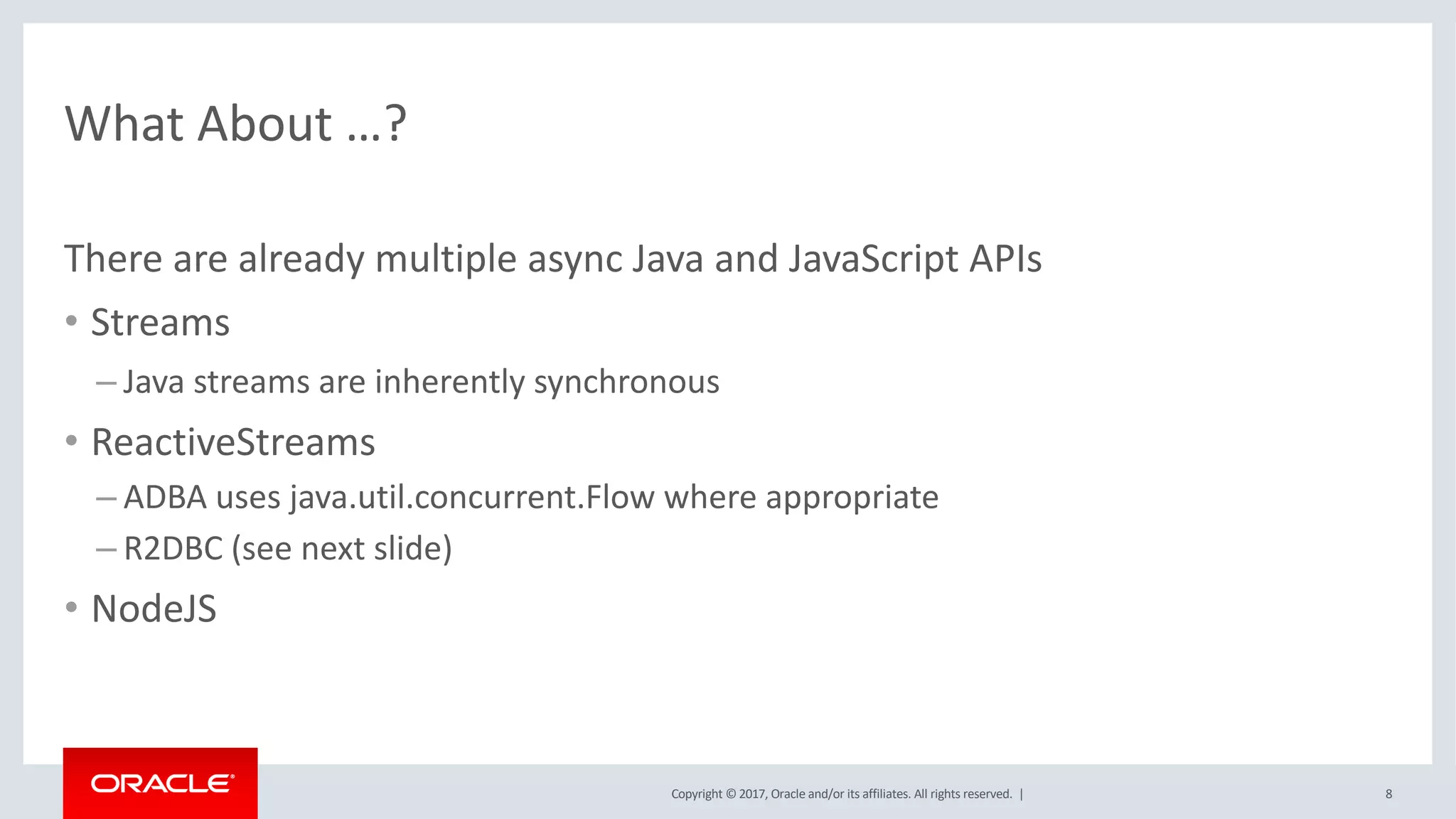
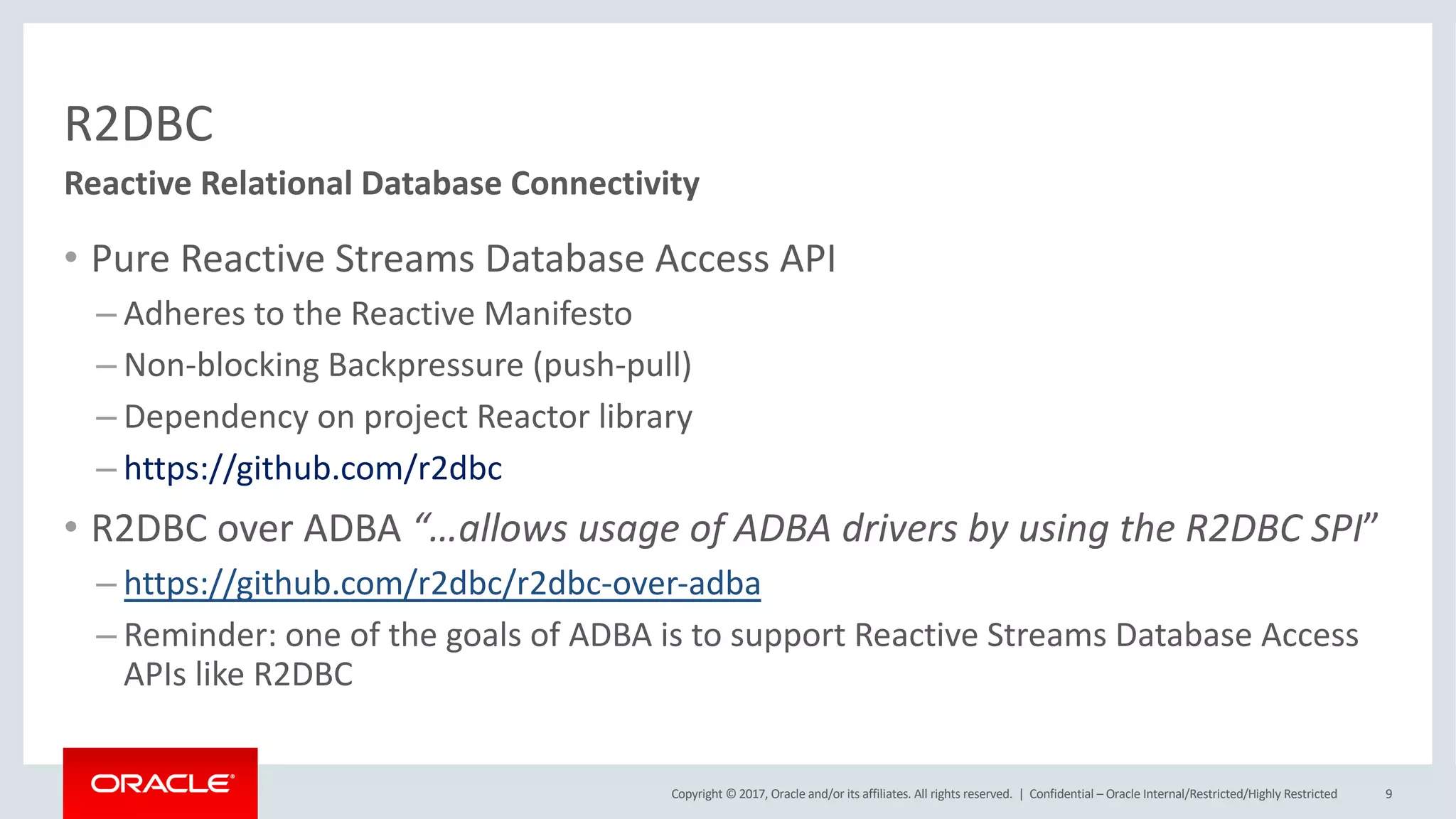
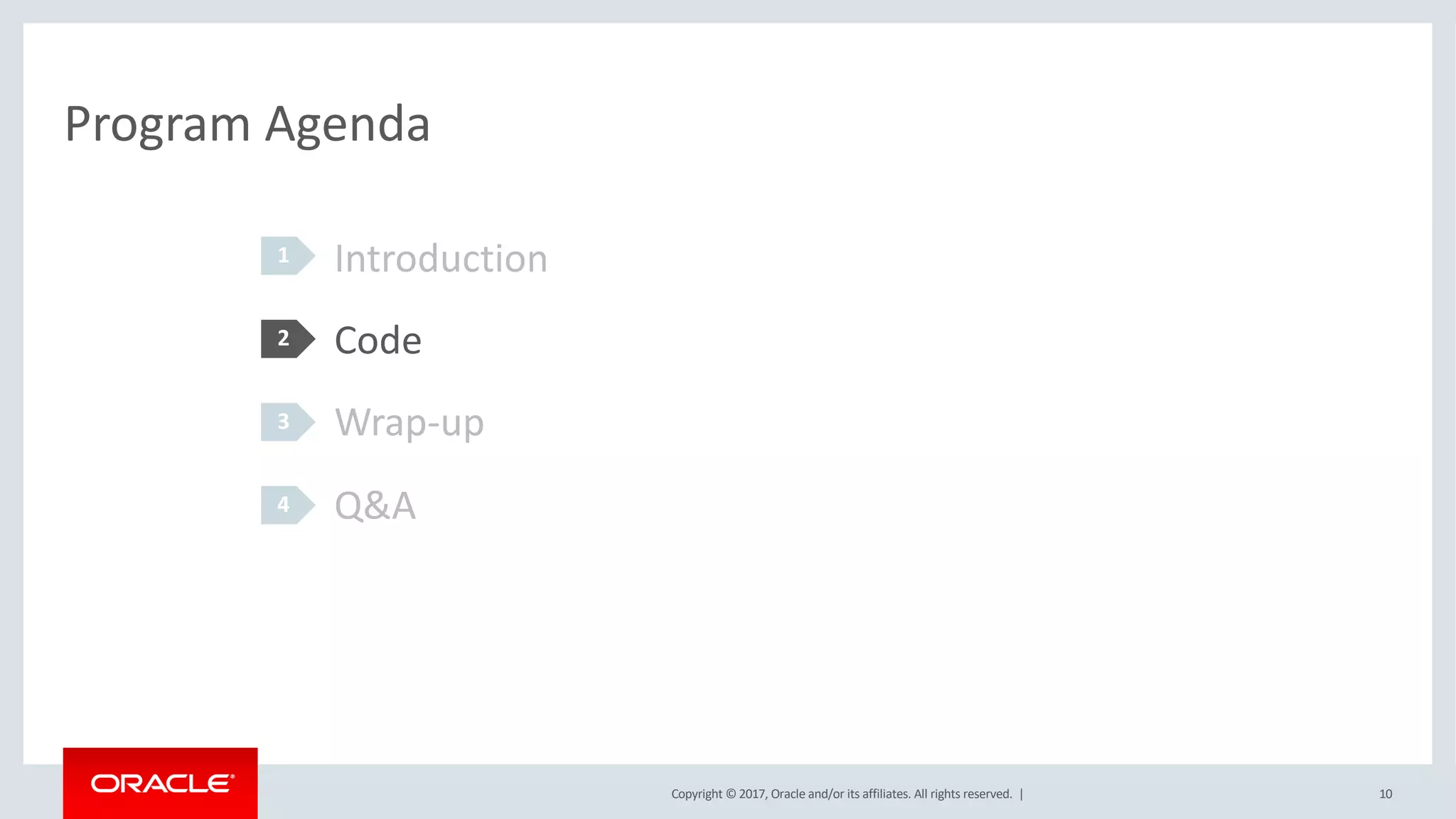
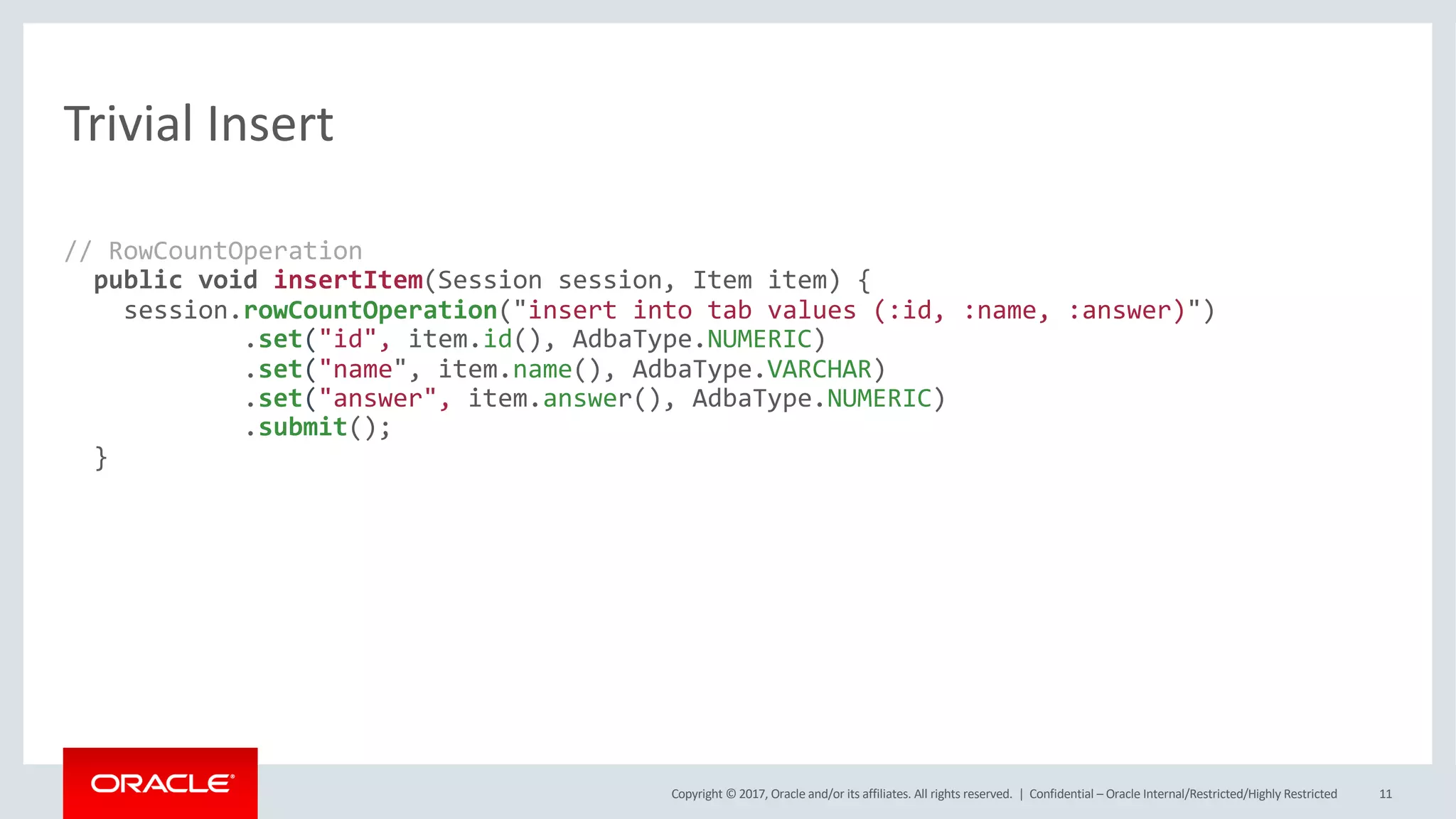
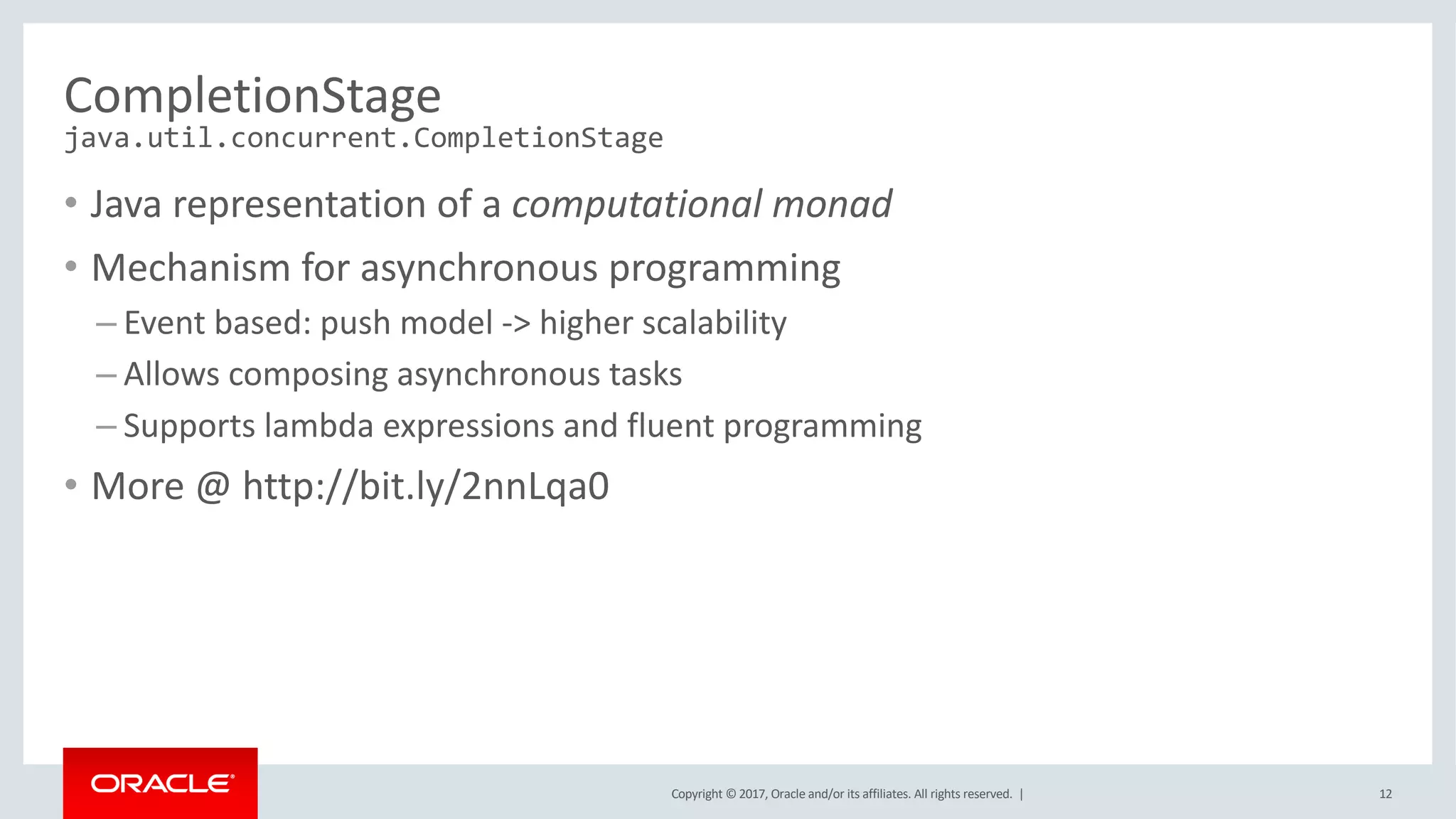
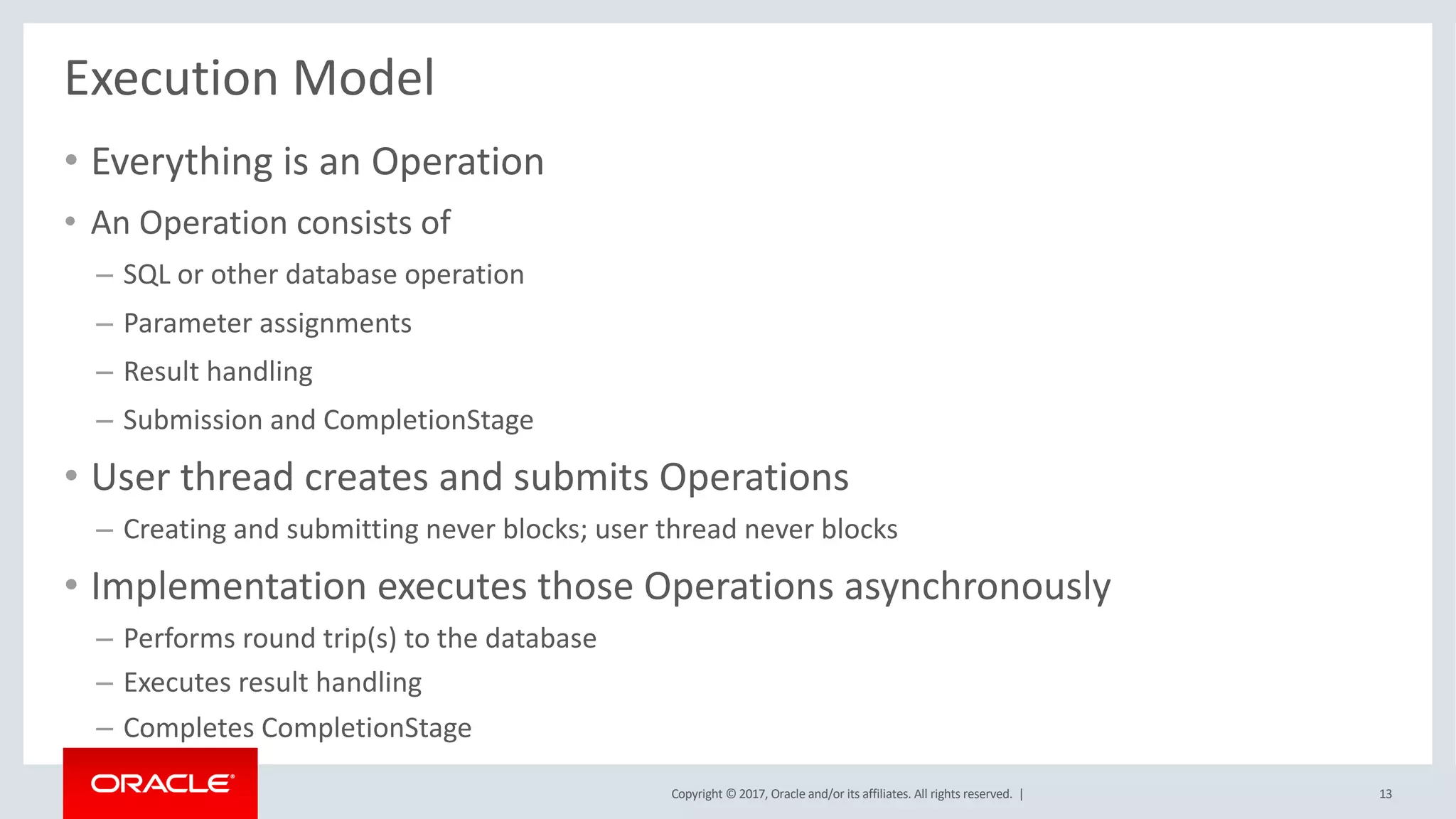
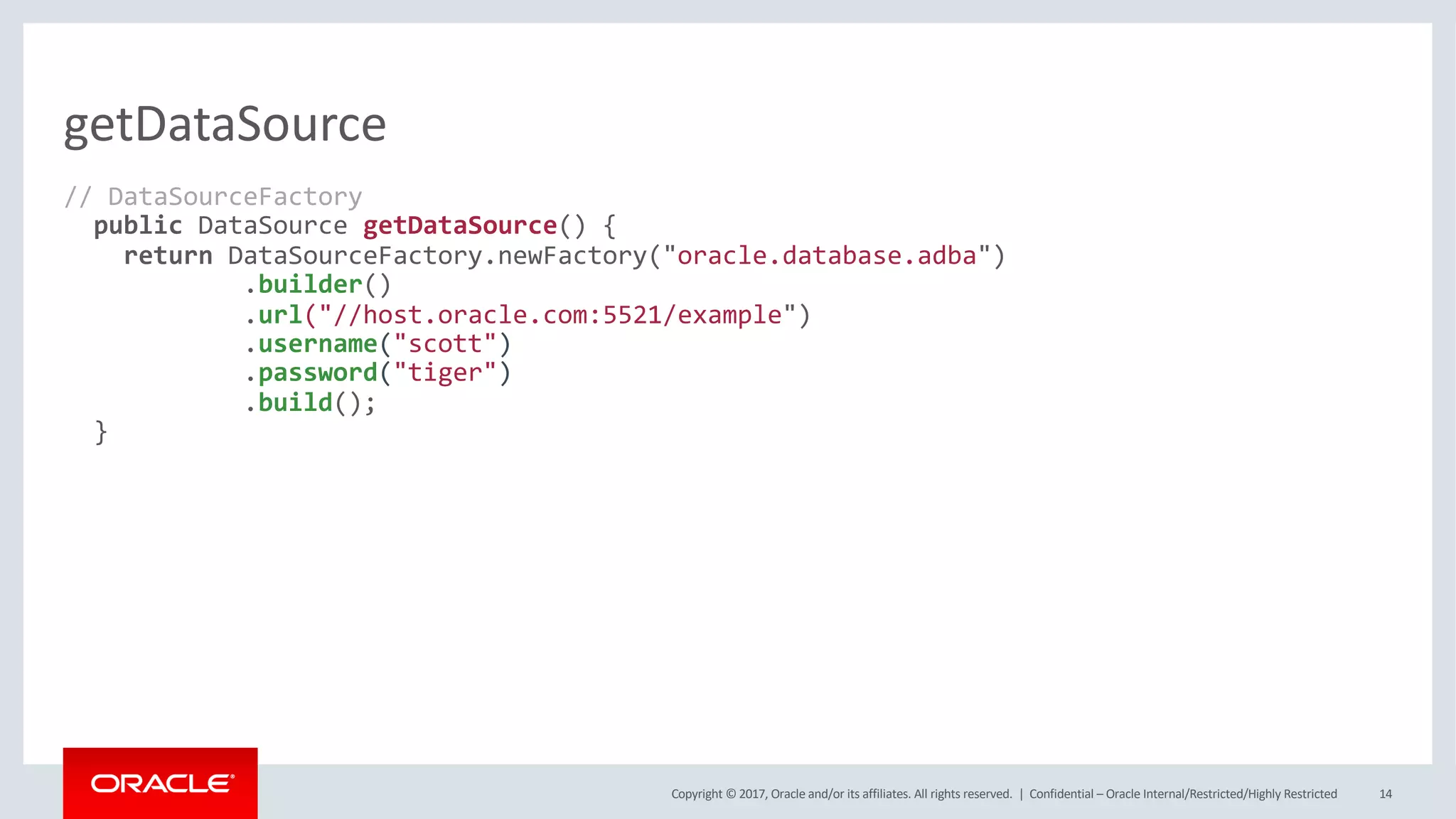
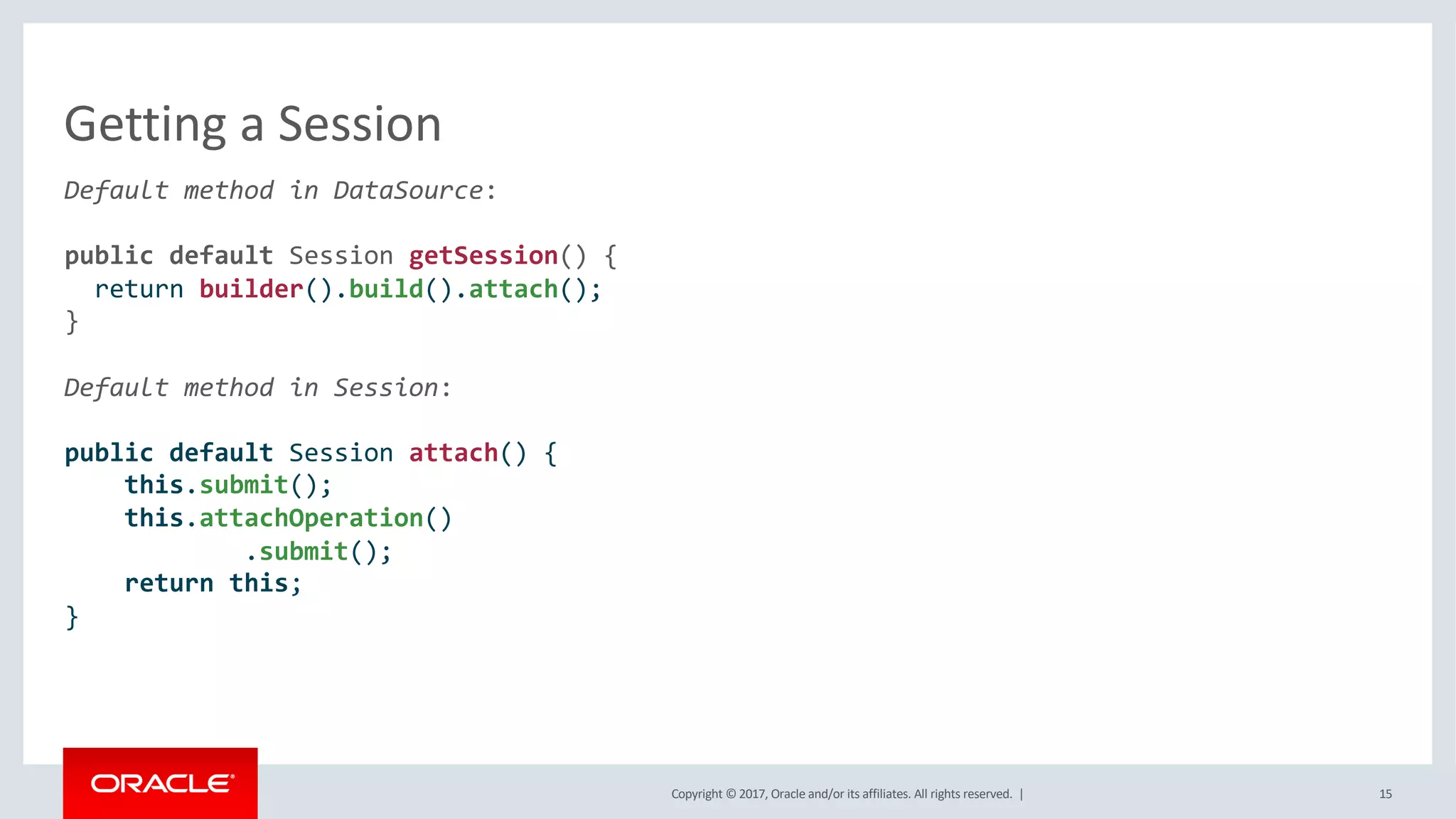
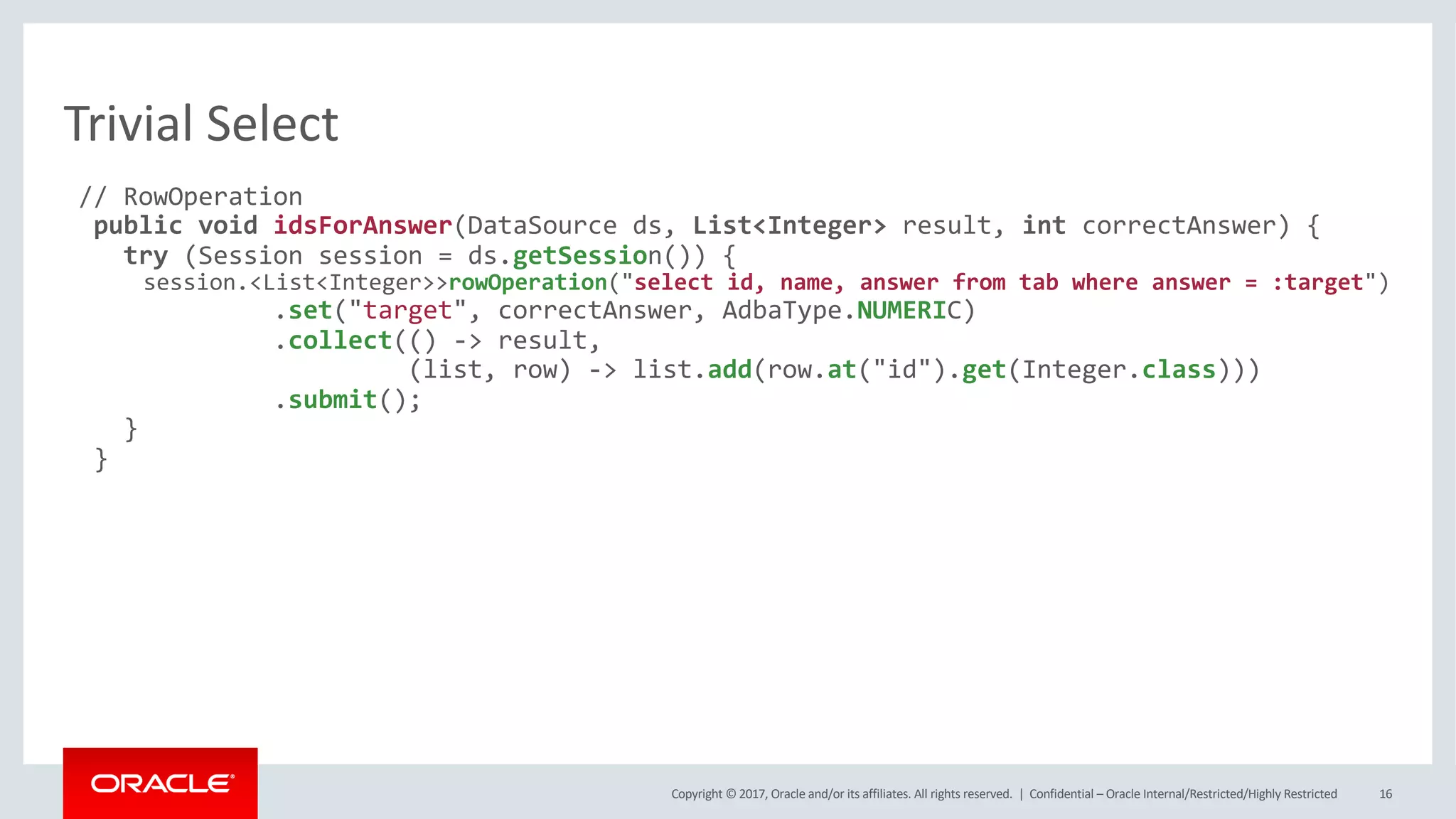
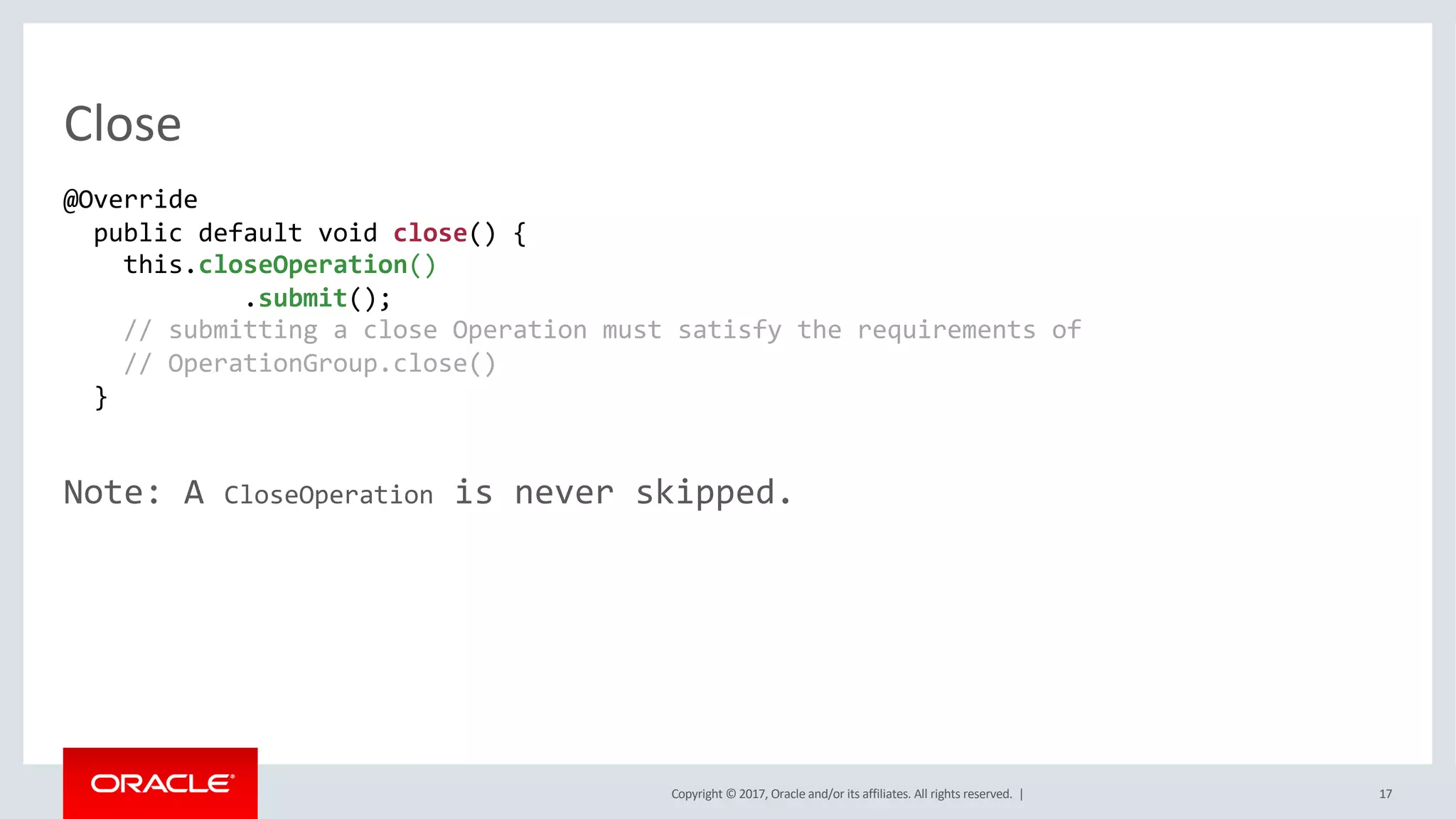
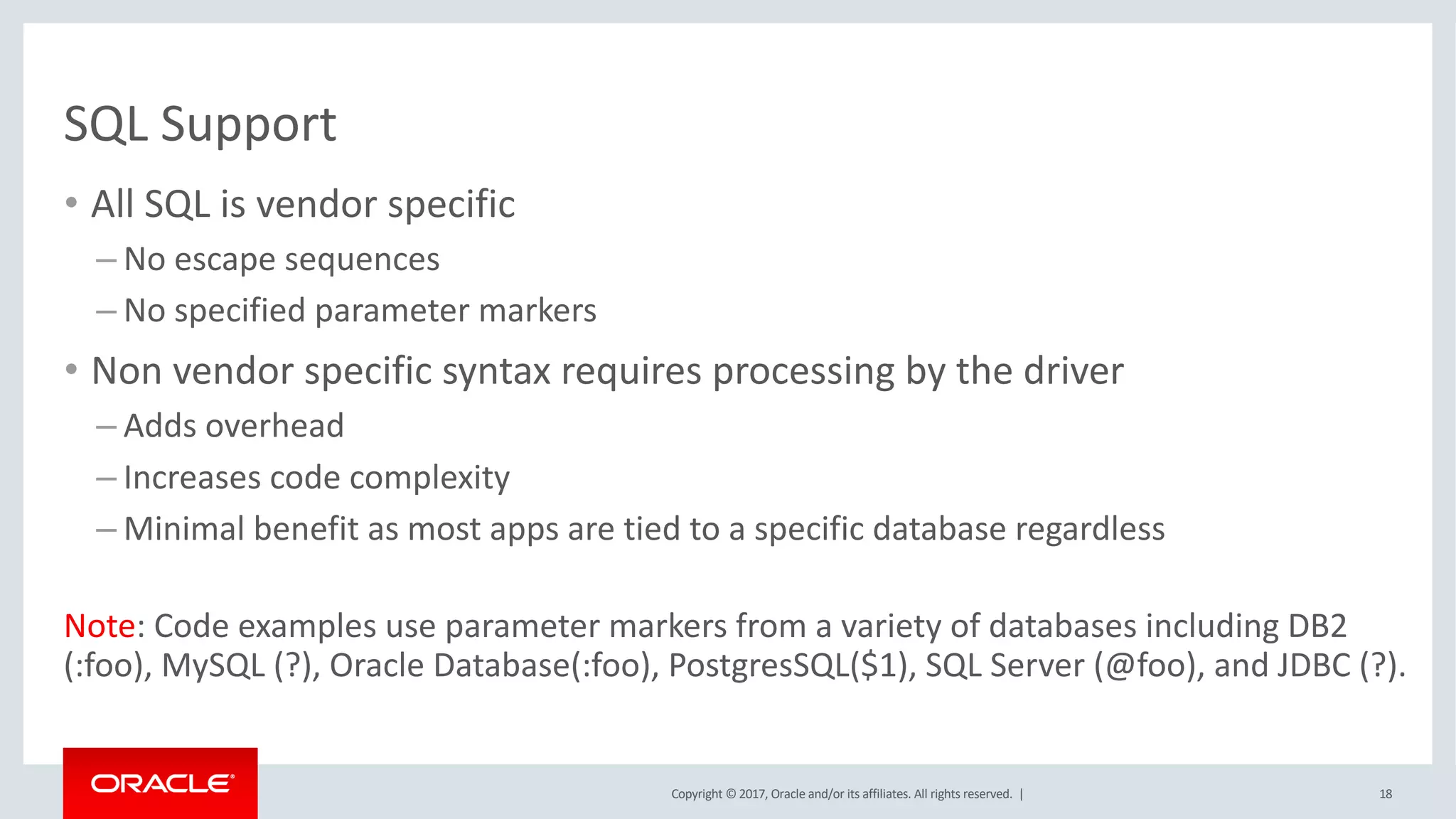
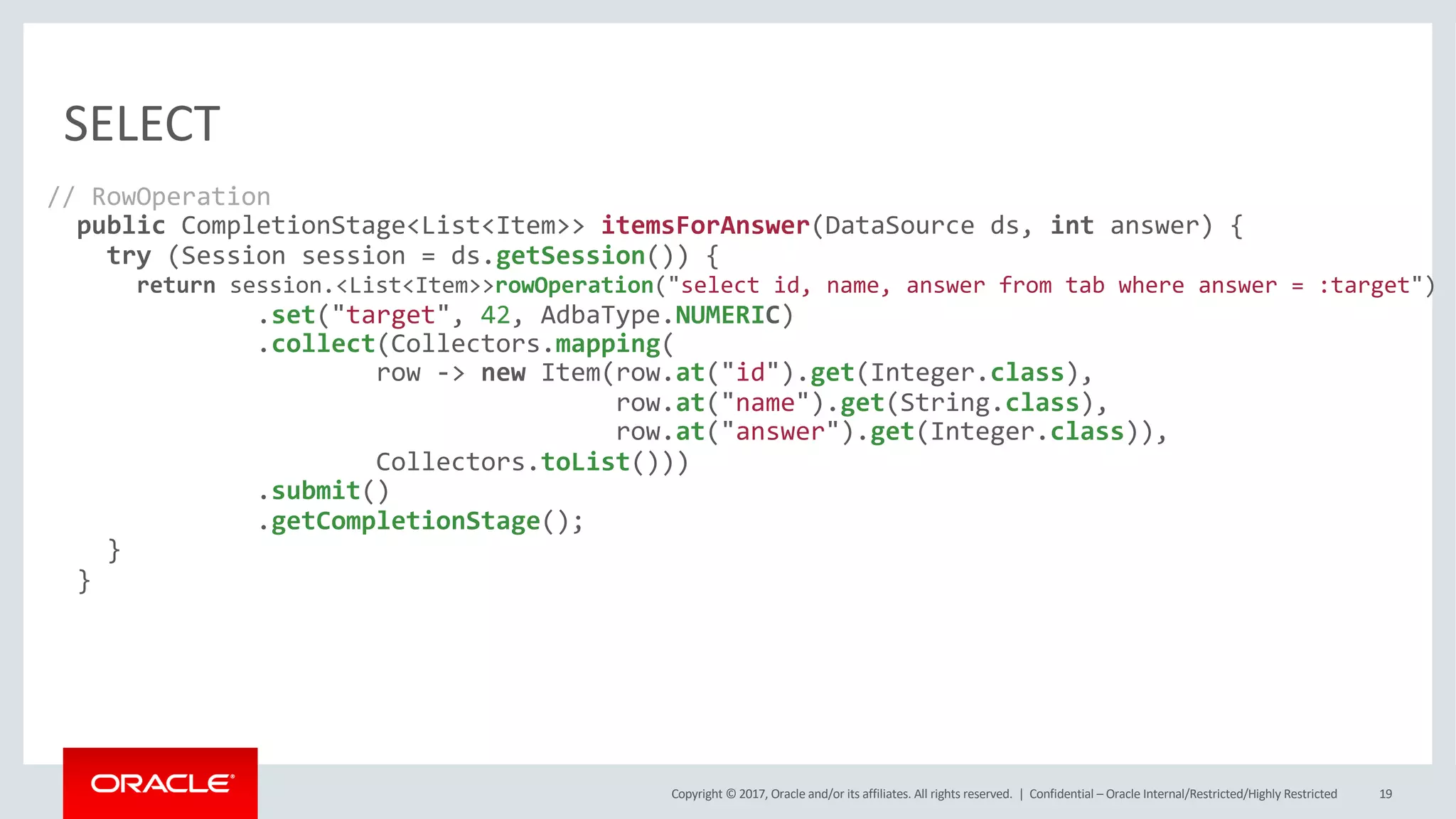
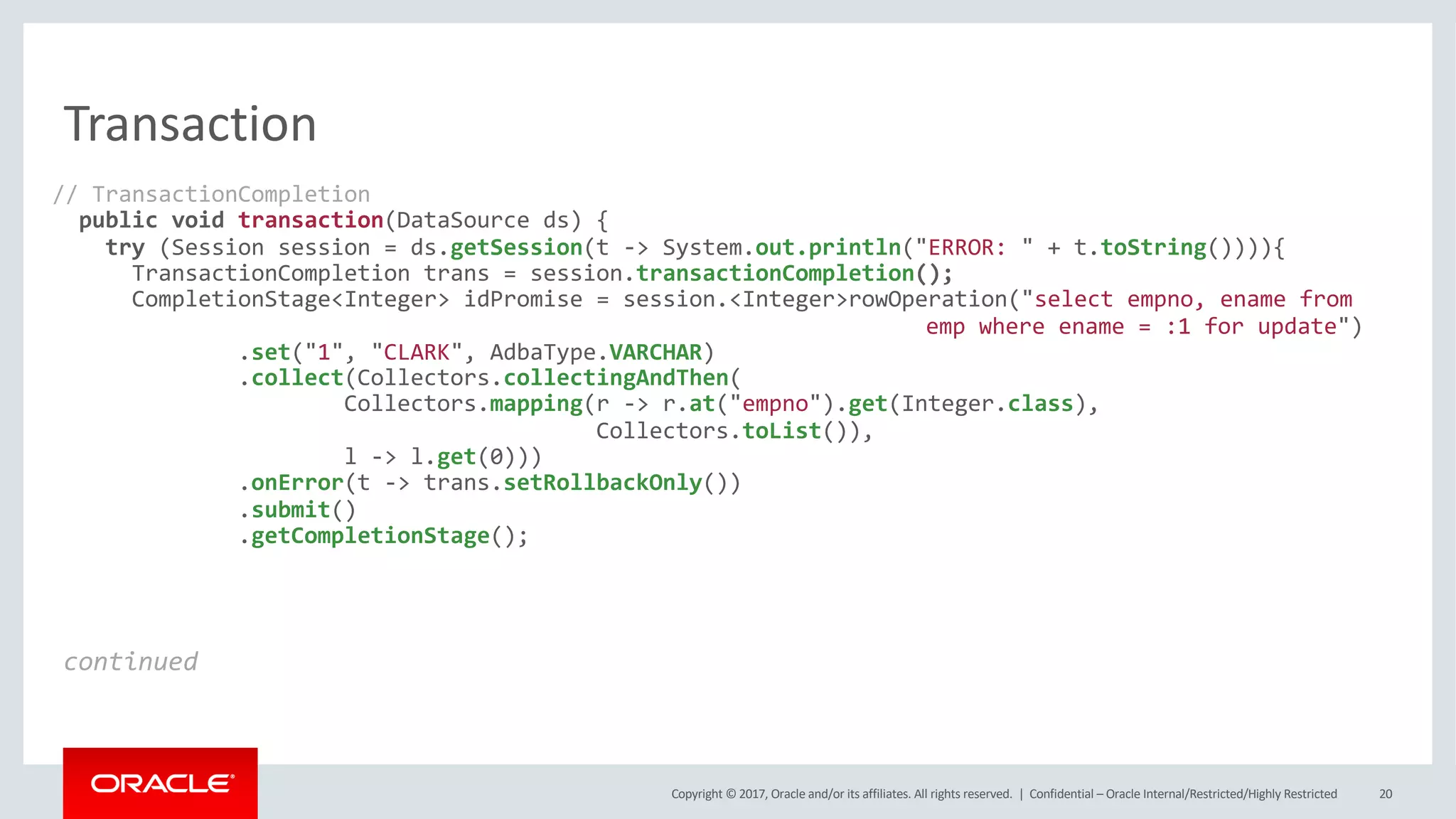
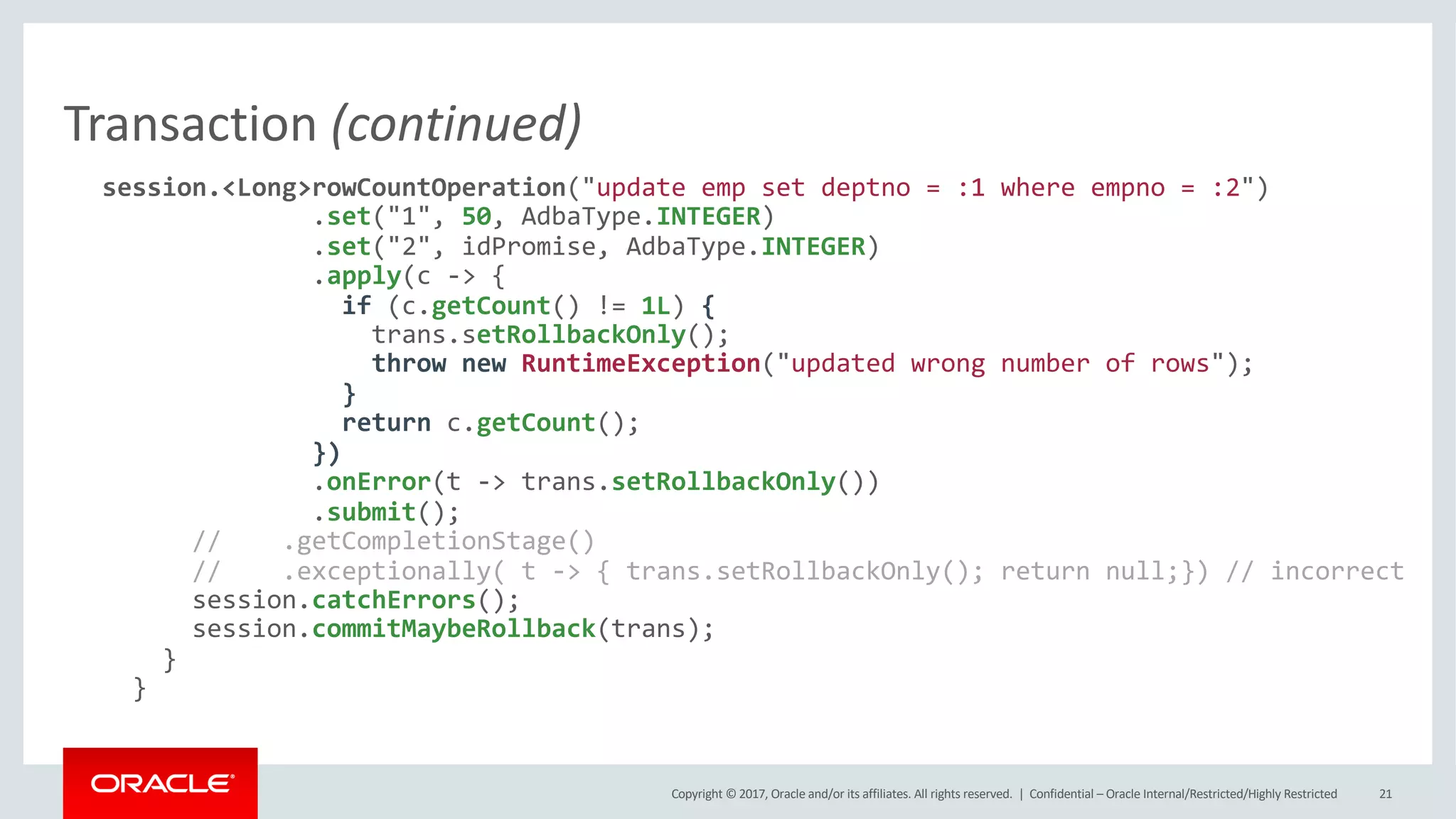
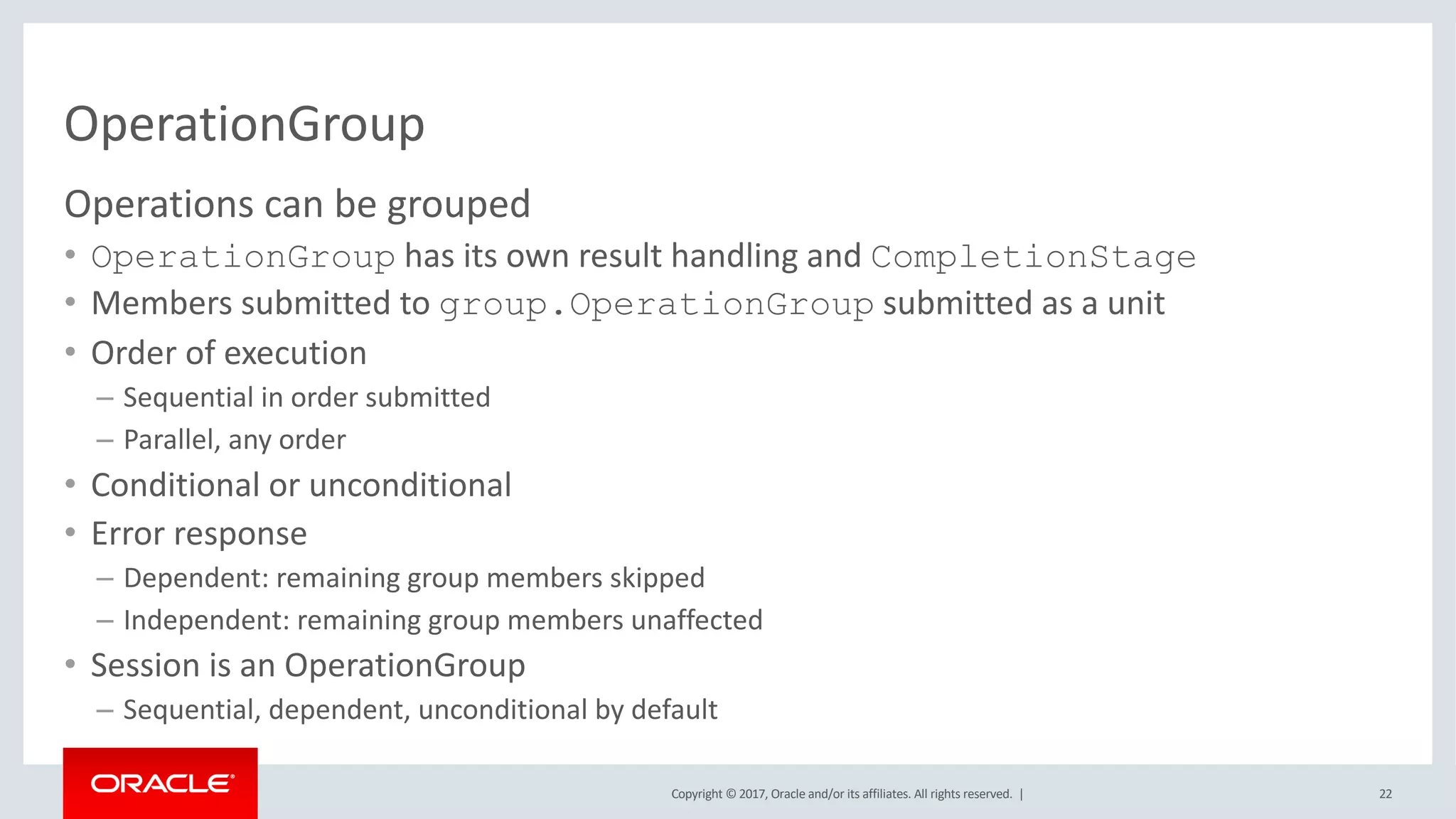
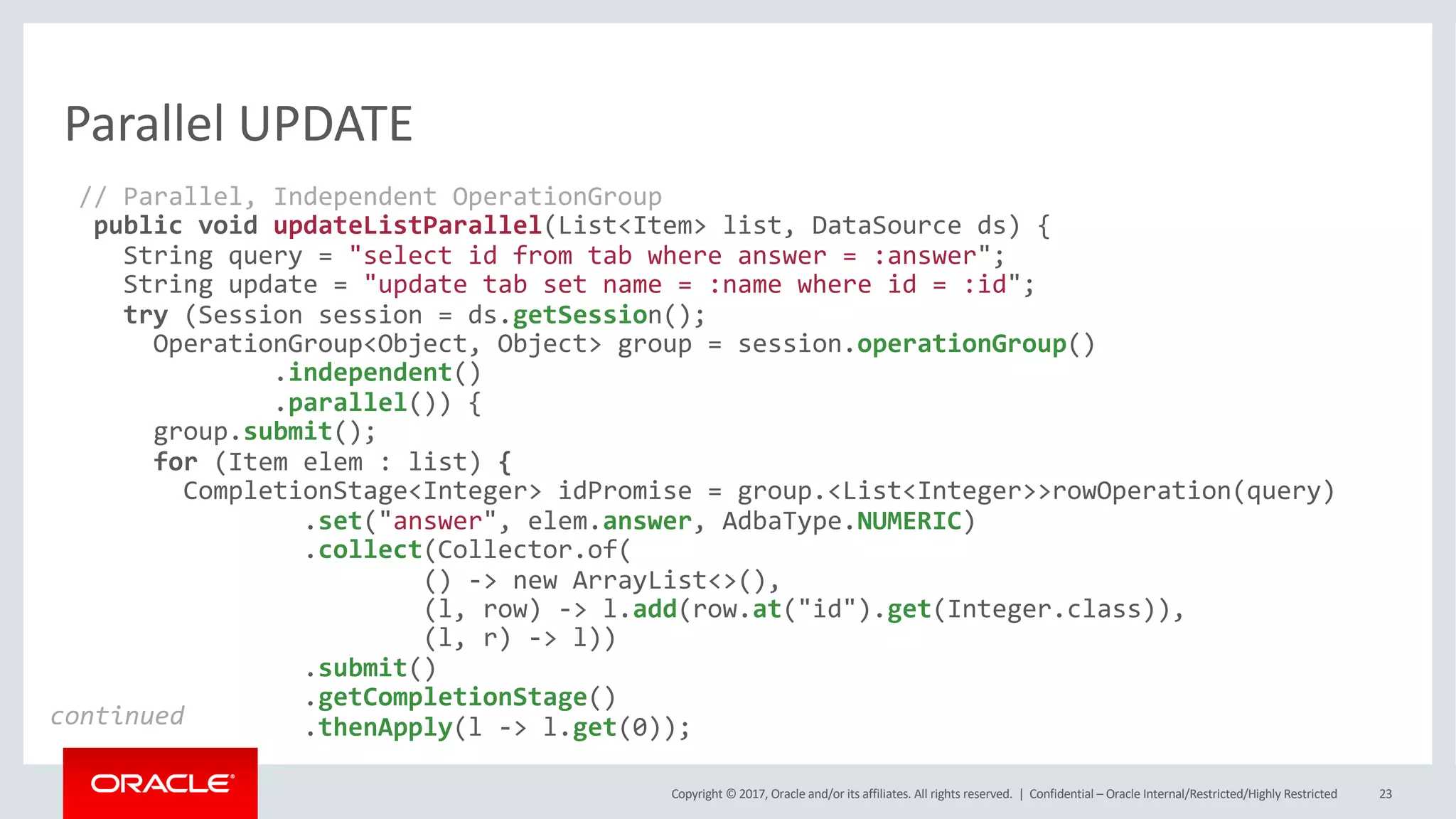
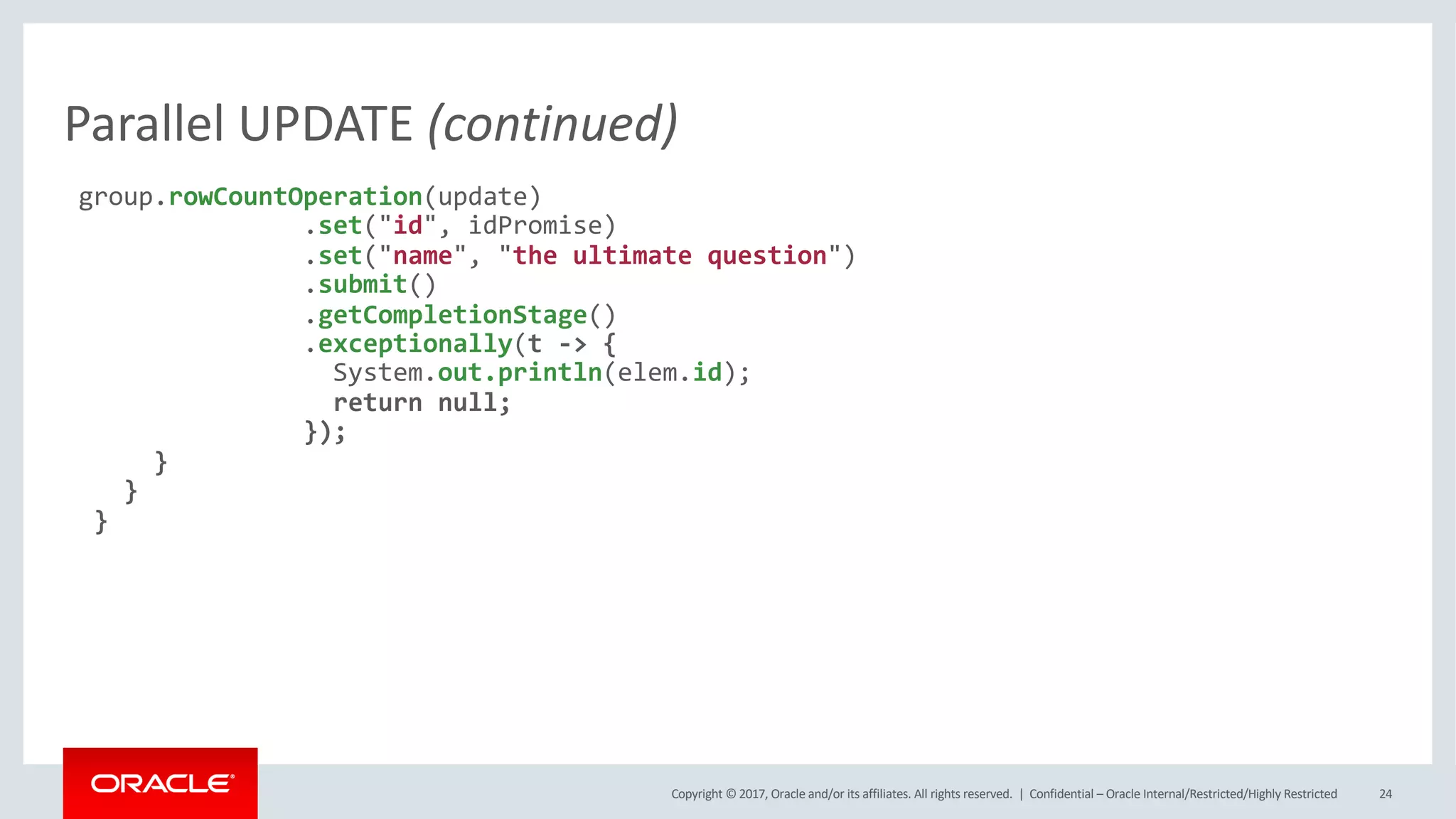
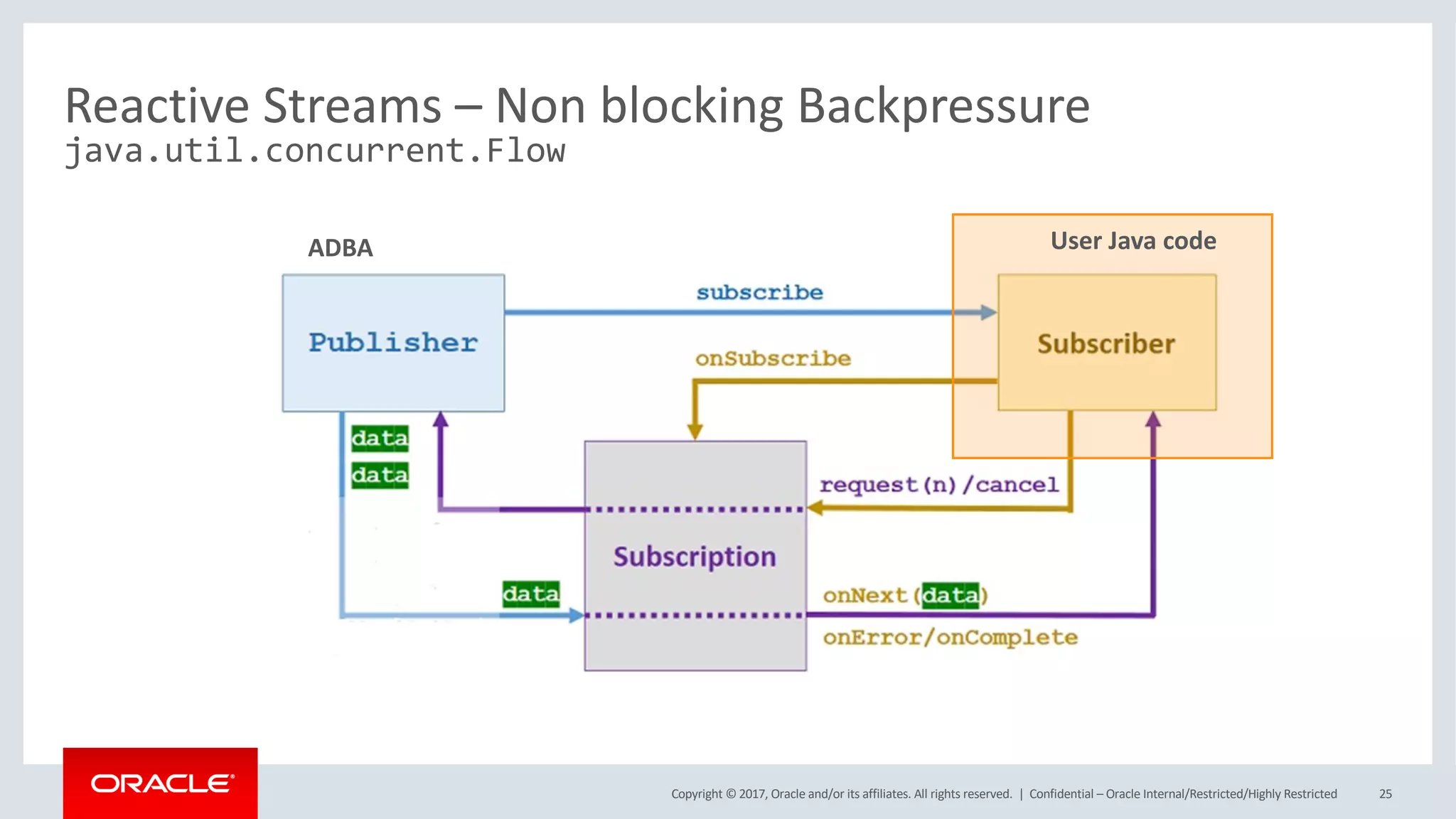
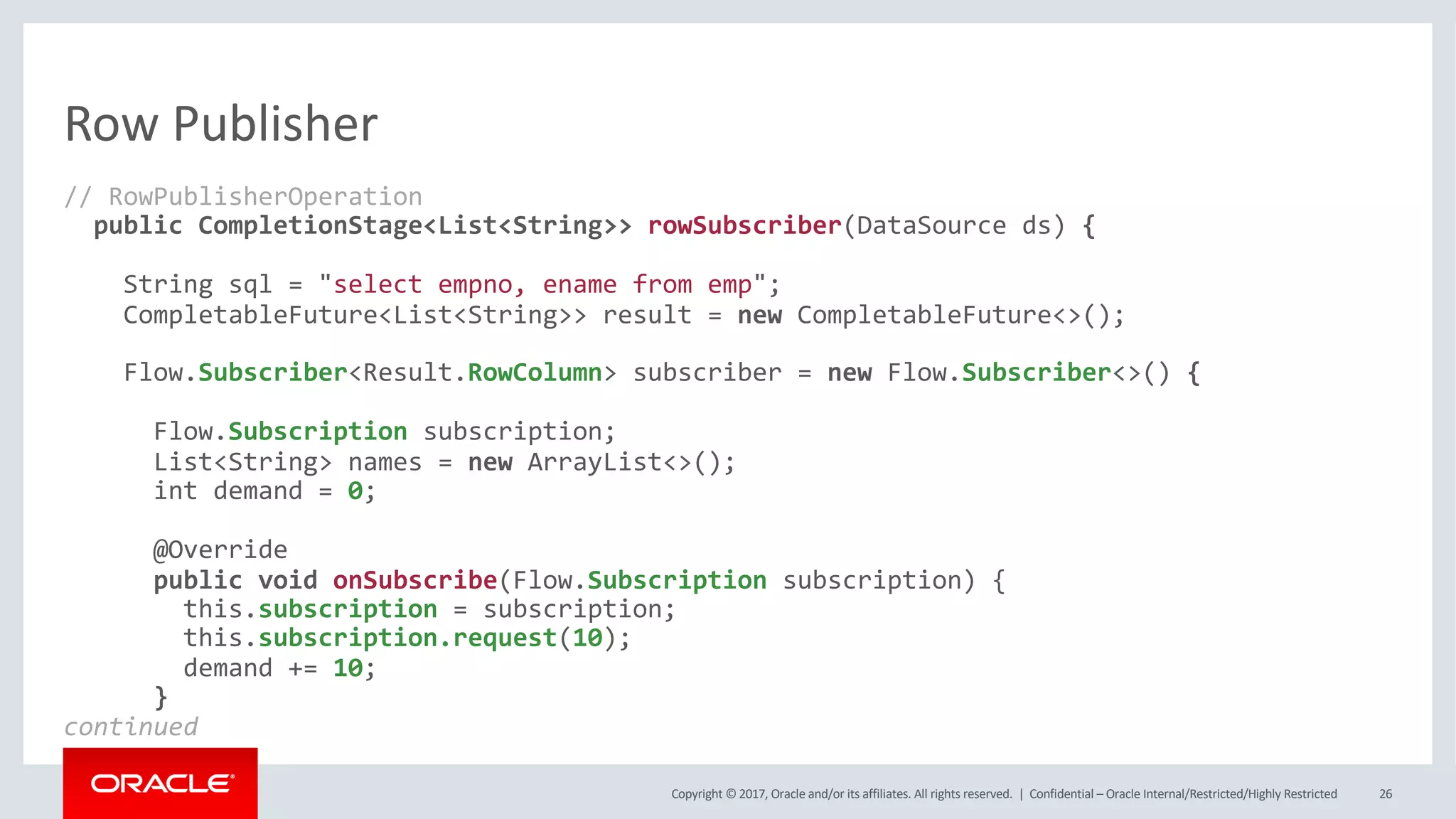
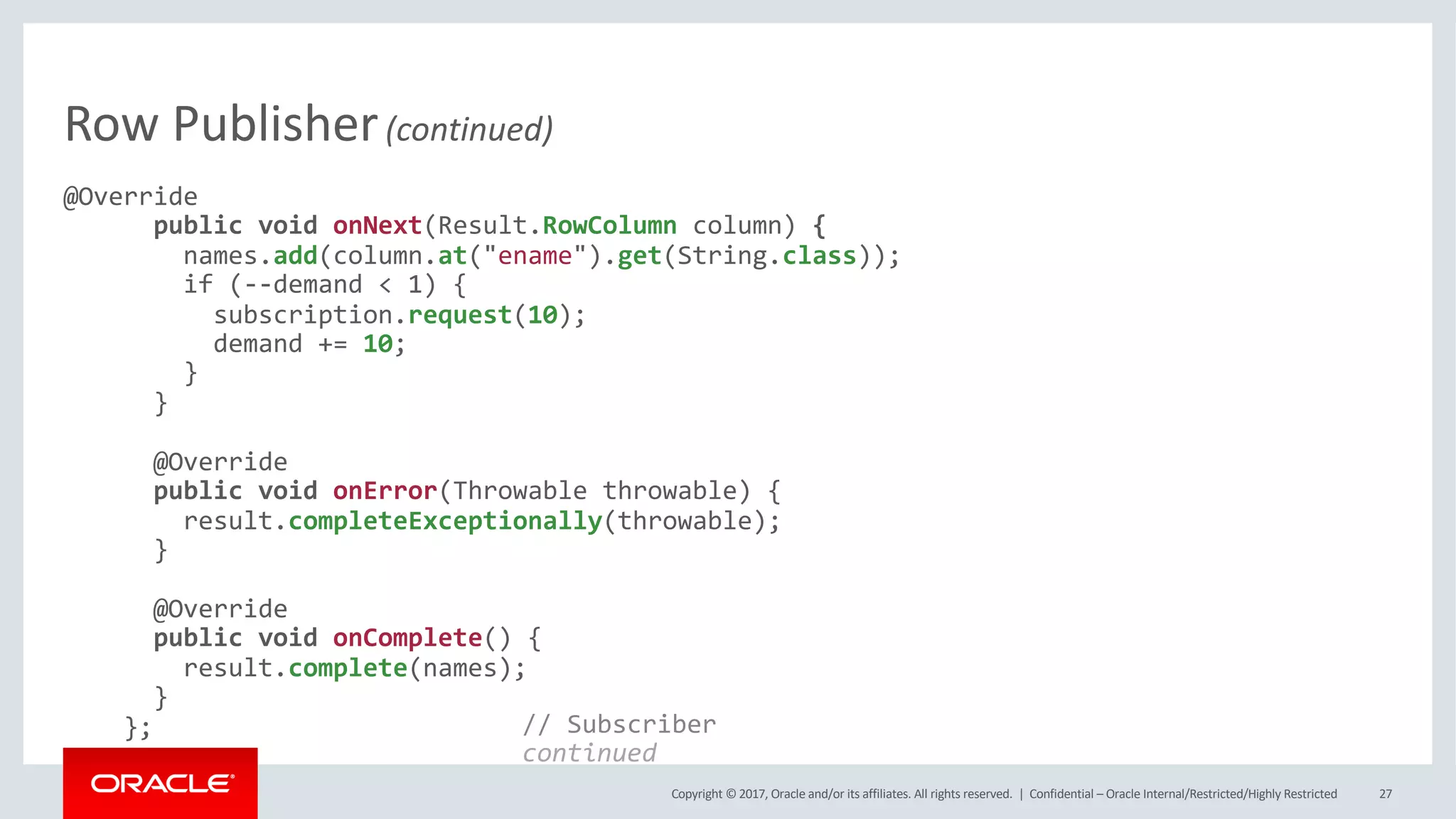
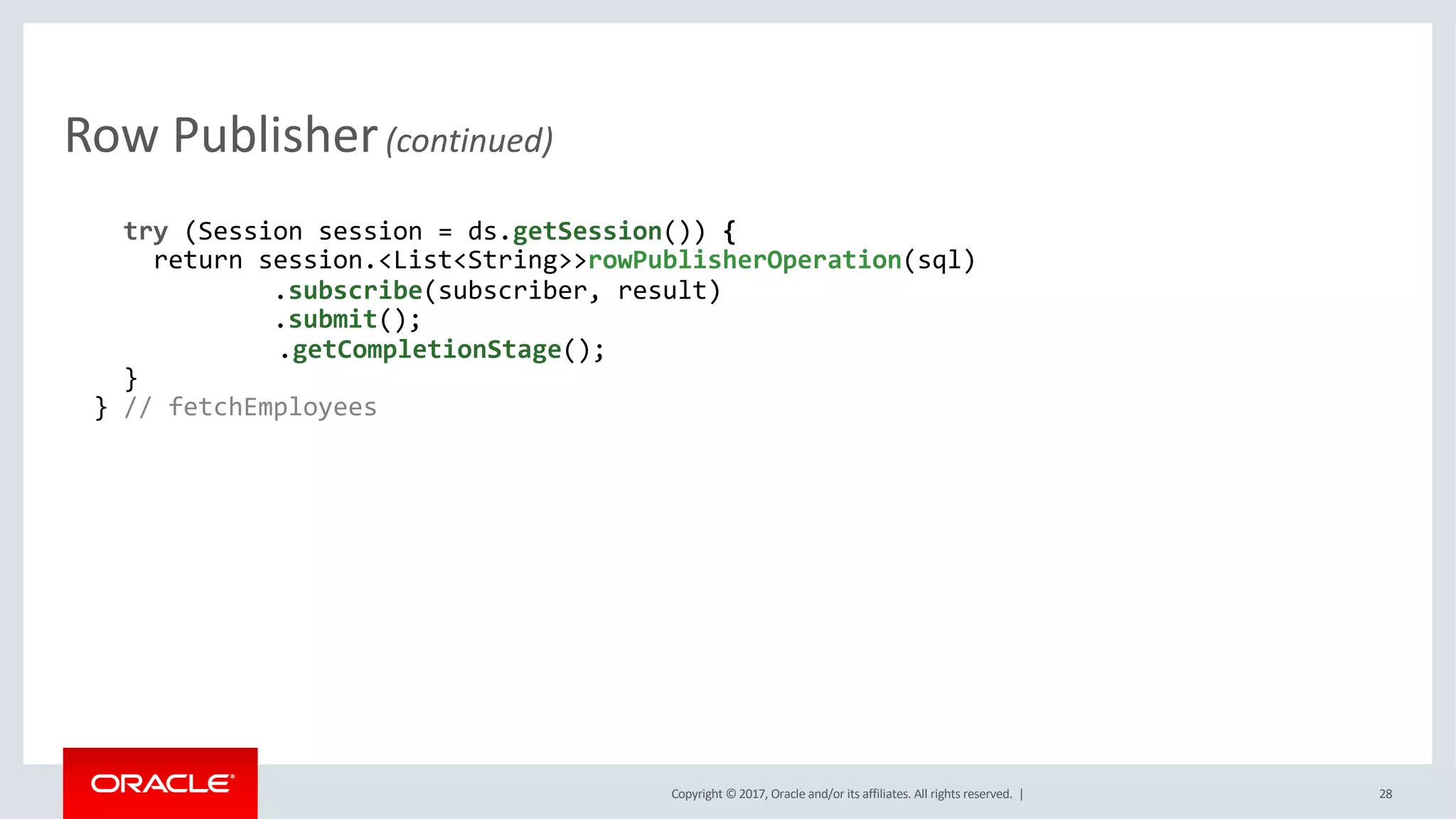
![Copyright © 2017, Oracle and/or its affiliates. All rights reserved. | Operation Submission Rate public class RecordSubscriber implements Subscriber<byte[]> { private final Session session; private OperationGroup<Long, Long> group; public RecordSubscriber(DataSource ds) { session = ds.getSession(); } @Override public void onSubscribe(Subscription subscription) { group = session.<Long, Long>operationGroup() .independent() .collect(Collectors.summingLong(c -> c)); group.submit(); session.requestHook(subscription::request); } continued 29](https://image.slidesharecdn.com/adba-nov2018-181129174207/75/Reactive-Java-Programming-A-new-Asynchronous-Database-Access-API-by-Kuassi-Mensah-29-2048.jpg)
![Copyright © 2017, Oracle and/or its affiliates. All rights reserved. | Operation Submission Rate (continued) @Override public void onNext(byte[] item) { String insert = "insert into tab values (@record)"; group.<Long>rowCountOperation(insert) .set("record", item, AdbaType.VARBINARY) .apply(c -> c.getCount()) .submit(); } @Override public void onError(Throwable t) { group.close(); session.close(); } @Override public void onComplete() { group.close(); session.close(); } } 30](https://image.slidesharecdn.com/adba-nov2018-181129174207/75/Reactive-Java-Programming-A-new-Asynchronous-Database-Access-API-by-Kuassi-Mensah-30-2048.jpg)
